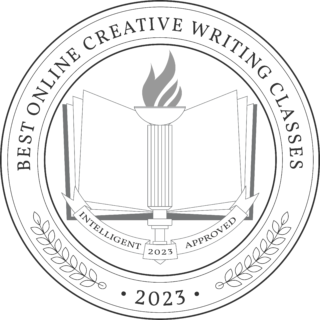

The 10 Best Online Creative Writing Classes of 2023
Written by Mary Van Keuren
Updated: April 27, 2023
Find your online creative-design program in minutes!
Most schools have rolling admissions and financial help so you can start your degree in a few weeks!
The stereotype of the writer starving in their garret while waiting for inspiration to strike is far from the truth for today’s authors. Writers work in many fields, and the best of them get where they are through education and practice. A good writing course will feature a knowledgeable instructor, along with the opportunity to practice the skills they are teaching. To help you determine the best one for your own needs, we’ve sifted through the top options and reviewed the 10 best online writing courses below.
- Coursera — Creative Writing Specialization by Wesleyan University — Top Pick
- Udemy — Secret Sauce of Great Writing — Most Affordable
- MasterClass — Shonda Rhimes Teaches Writing for Television — Best for Multimedia Writing
- The Novelry — Writing for Children — Best for Children’s Literature
- Writer’s Digest University — Creative Writing 101 — Best for Beginners
- Bookfox — Two Weeks to Your Best Children’s Book — Best Editorial Support
- CreativeLive — Writing Your Story — Best for Memoir Writing
- Grammar Lion — A Grammar Refresher for All Writers & Editors — Best for Grammar Review
- LitReactor — Writing the Weird — Best Online Community
- Gotham Writers Workshop — Fiction Writing Level 1 — Best Supporting Materials
Our Ranking Criteria
The best online writing courses offer you the chance to take your natural writing skills and shape them into a form that will open the doors in your chosen field. Whether you want to pen tv sitcom scripts or write the next great American novel, the best online writing course for you will take you further than you would be able to go on your own, helping you develop professional-level skills that will allow you to obtain the job of your choice. We based our decisions for the best courses on the following criteria.
Basic Ranking Criteria
There’s no one factor that makes a writing course the best. Instead we looked at multiple aspects for each of 74 online classes and factored them all into our final ranking. In our first pass, we looked at basic ranking criteria:
Time to complete. Although it’s important to have the time you need to thoroughly understand what you’re learning, no one wants to spend more time in class than is necessary. Some of our chosen classes are self-paced, others take less than an hour to one year.
Prerequisites required. None of our finalists has any prerequisites, which means that anyone with a basic understanding of the English language can participate and learn. If you do have previous writing experience, all the better — but it’s not necessary.
Flexible schedule. All but two of our choices feature a flexible schedule. Your life is busy, and for most people it is difficult to have to sign into the course at a specific time. Eight of our chosen courses allow you to take the classes and do the work as you are able, at a time that’s convenient for you.
Certificate of completion. A certificate of completion is not standard for writing courses. However, if one is available, it is often a plus to add the certificate to your resume and LinkedIn profile.
Advanced Ranking Criteria
Once we reviewed results for the basic ranking criteria, we looked at more advanced features which are specific to the topics of the courses. Since many of our finalists have different focuses (such as children’s literature or creative writing), we were more concerned that they each covered their topic completely, rather than covering the same things as the other courses.
- The course thoroughly covers the material needed for an understanding of the topic.
- Instructors have solid credentials in the field they are teaching.
- The course includes materials that are appropriate to someone without skills or training in that area.
- The course includes opportunities for students to practice their writing skills.
- Instructors are personable and engaging.
- Alumni of the course are equipped to write at a beginning professional level.
- Graduates of the course have landed good jobs in their field.
- The course does not require software beyond a basic writing program such as Microsoft Word.
- Goals for the course are clear from the beginning.
10 Best Online Writing Courses Courses or Bootcamps
Coursera creative writing specialization by wesleyan university.
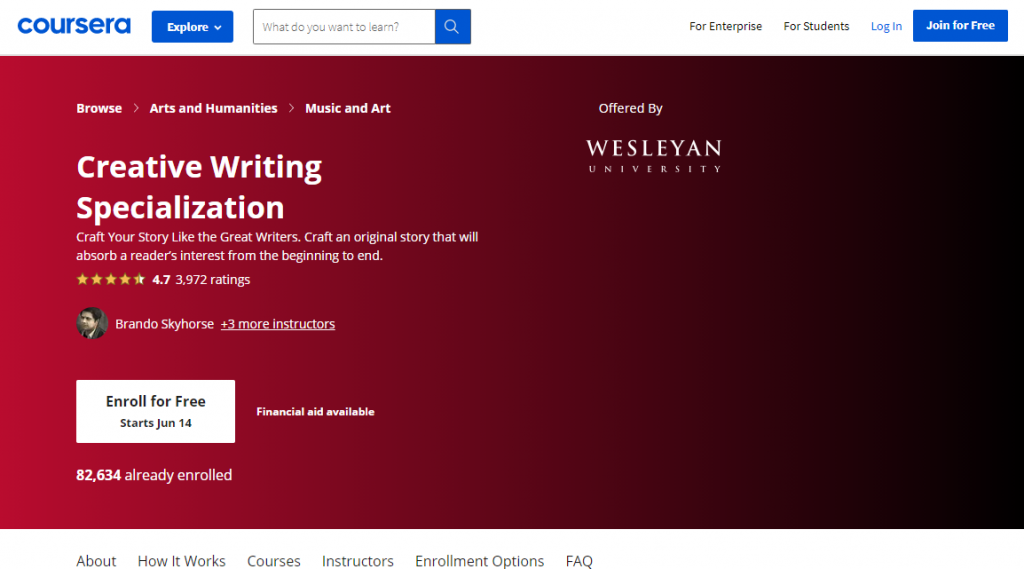
Intelligent Award: Top Pick
Coursera’s business model is somewhat different from many online education companies. It partners with established colleges and universities to offer classes at the higher-ed level. You don’t earn college credit for many courses, but can gain valuable certificates by completing specializations. The Creative Writing specialization consists of five courses that focus on three genres: short story, narrative essay, and memoir. Within those genres, you’ll learn about crafting characters and settings, writing descriptions, and developing your style, followed by a capstone class that will result in a completed story, essay or memoir. Throughout the specialization, you’ll have access to peer readers who can critique your work and suggest improvements. The course is taught by faculty at Wesleyan University who are published authors and trained in the creative writing process.
- Price: $49/month
- Time to complete: 3-6 months
- Prerequisites required: None
- Flexible schedule: Yes
- Includes verified certificate of completion: Yes
Who should take this course? This course is best for writers wishing to jumpstart or fire up their creative projects with college-level coursework.
| Distinguished university-level faculty | No instructor feedback |
| 7-day free trial when signing up | |
| Financial aid is available |
Udemy Secret Sauce of Great Writing
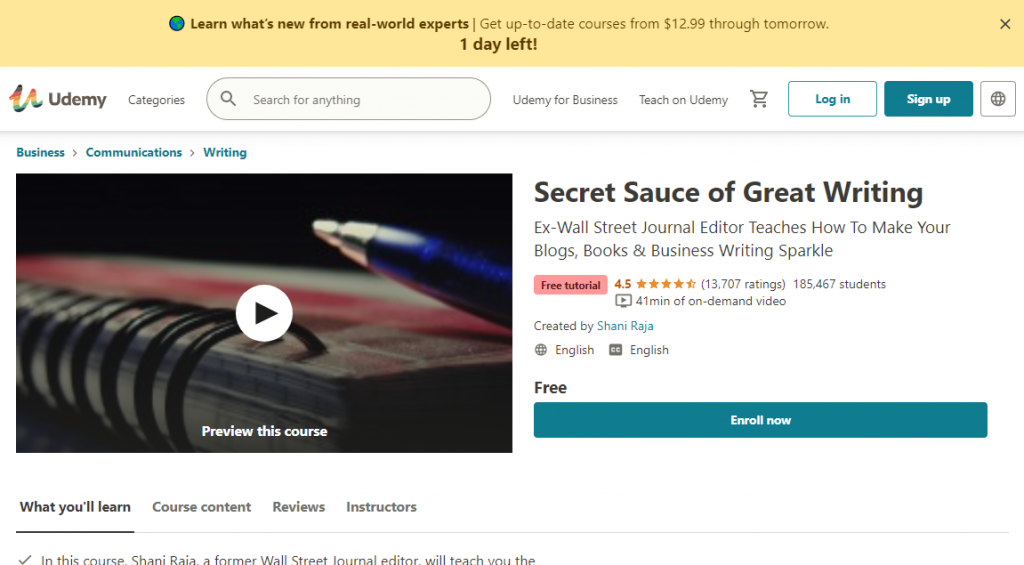
Intelligent Award: Most Affordable
One of the better-known names in the online education industry, Udemy offers both paid and free courses, and, as of April 2021, had more than 40 million students. As you might imagine, an undertaking that vast will have a broad range of quality among its products. One of the company’s many courses on writing, The Secret Sauce of Great Writing stands out. Taught by former Wall Street Journal editor Shani Raja, the class focuses on what Raja believes are the four ingredients of good writing: simplicity, clarity, elegance, and evocativeness. Understanding and using these four ingredients, Raja says, will take your writing from the mundane to the inspiring. And at this price — it’s free! — and with a minimal time commitment (the course runs less than an hour), it is a great way to give your writing a boost and possibly learn some techniques that can enhance your output, whether you’re writing press releases or your autobiography.
- Price: Free
- Time to complete: 41 minutes
- Includes verified certificate of completion: No
Who should take this course? Anyone looking for a short, inspirational course at no cost.
| Little time commitment needed | No interaction with instructor |
| Course available at no cost | |
| Includes exercises |
MasterClass Shonda Rhimes Teaches Writing for Television
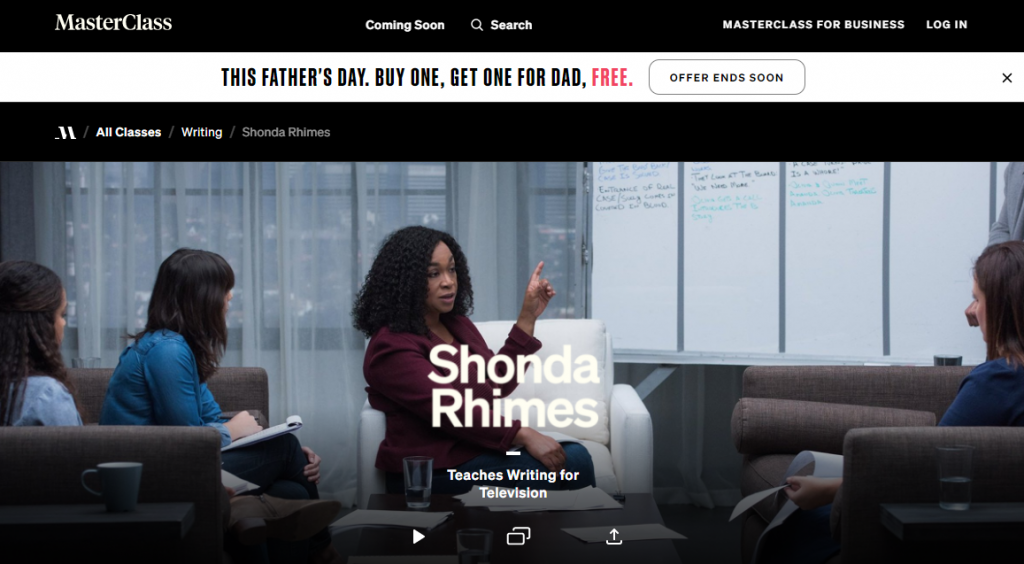
Intelligent Award: Best for Multimedia Writing
Our top pick from MasterClass is Shonda Rhimes MasterClass on writing for television, although there are a number of excellent options for writers, including courses taught by Neil Gaiman, David Sedaris, and Joyce Carol Oates. Rhimes packs a lot into her 30 lessons, including how to create a compelling character, script structure, and writing authentic dialogue. But she also takes it beyond writing instruction, discussing editing, breaking into the industry, and showrunning, among other TV-centric topics. Your annual membership to MasterClass also gives you access to a pdf workbook and the opportunity to download the classes and watch them offline. Rhimes is one of the biggest names in television today and an engaging speaker who seems to relish letting learners in on all the secrets that got her to where she is today.
- Price: $180 annual membership (access to 100+ classes)
- Time to complete: Self-paced
Who should take this course? Best for those with some script-writing experience, or anyone who wants to try their luck with the notoriously-difficult-to-break-into world of TV writing.
| 30-day guarantee | Classes are, on average, only 10 minutes long |
| Instructors at the top of their field | |
| Subscription includes 100+ courses |
The Novelry Writing for Children
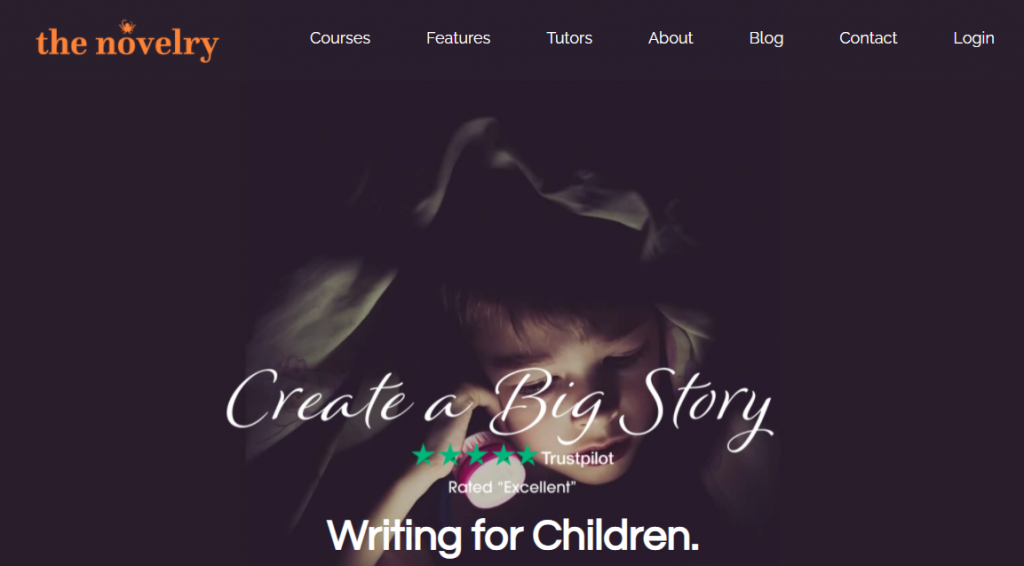
Intelligent Award: Best for Children’s Literature
The Novelry offers several programs for children’s writers, ranging from the Classic Course Box Set, which allows you to work through 45 lessons at your own speed for $365, up to The Book in a Year Plan, which guides you from planning, creating, and writing a children’s novel to publishing within a year (costs $1,999). The latter includes nine one-on-one sessions with a children’s fiction tutor to help you shape your creation — a valuable benefit for budding writers. An interactive platform allows you to ask questions or add comments online. Classes are 15-20 minutes in length, and the company recommends that you allow one hour a day for your writing. The platform keeps track of your progress and offers feedback as you go.
- Price: $365 to $1,999
- Time to complete. Self-paced; one year accessibility
- Prerequisites required . None
- Flexible schedule : Yes
Who should take this course? If you already have a great plan for a novel, the Book in a Year plan is ideal. If you’re still searching for an idea on which you can build a novel, try the Classic Course.
| 45 lessons | Best for those who already have a book idea |
| Created by a Booker-listed author | |
| One-on-one mentoring available |
Writer’s Digest University Creative Writing 101
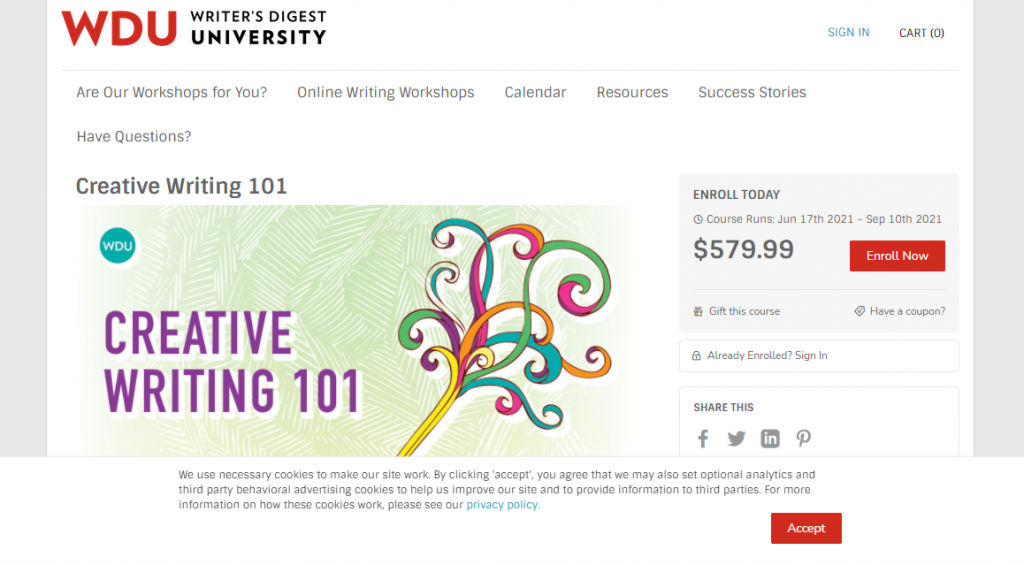
Intelligent Award: Best for Beginners
If you are at the very start of your writing career, you should consider checking out Writer’s Digest University. A venerable name in the writing world, Writer’s Digest has been publishing a magazine for writers since 1920, and it has the professional chops to offer solid, comprehensive courses to both beginners and experienced writers. Creative Writing 101 is geared toward those who have an idea and the urge to write, but are not sure where to begin. The classes lead you in shaping your protagonist and antagonist and fleshing out the plot of the story while addressing common writerly concerns such as determining point of view and how to motivate yourself to write. The 12 sessions are available for $579.99, which is a bit on the steep side for what you receive, but the quality of the courses is generally excellent.
- Price: $579.99
- Time to complete: 12 weeks
Who should take this course? Those who are at the beginning of their writing career without a strong sense of direction. It’s also good for established writers who would like a refresher on topics such as imagery and dialogue.
| Instructor feedback on written assignments | Only 12 sessions |
| Award-winning instructor | Cost is at the high end for a single course |
| Free writing resources available |
Bookfox Two Weeks to Your Best Children’s Book
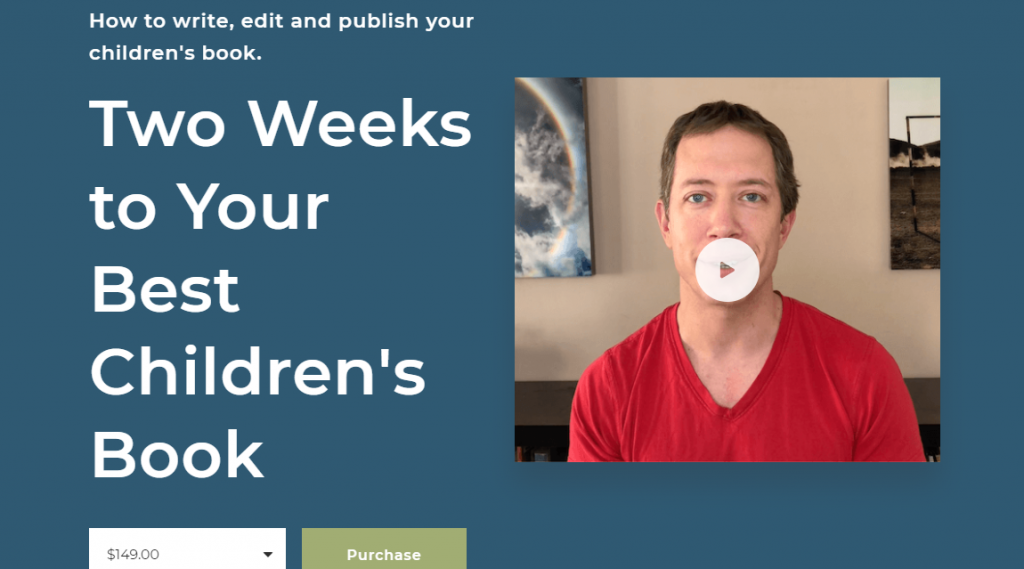
Intelligent Award: Best Editorial Support
Bookfox is the brainchild of John Matthew Fox, a former college professor, editor, and writer, who well understands the ins and outs of the publishing world. His courses, which include Two Weeks to Your Best Children’s Book, are packed with information. They delve far beyond the actual writing process, and include how to generate book ideas, the revision process, and, perhaps most importantly, how to successfully publish your book. He also touches on topics including finding an illustrator and agent as well as what you should know if you decide to self-publish. Fox himself teaches each class. The self-paced children’s book class has 14 lessons, which take anywhere from two weeks up to one year. As a one-man operation, Bookfox doesn’t have the highly-polished look and feel of companies like MasterClass, but Fox’s knowledge base more than makes up for his website’s lack of bells and whistles.
- Price: $149
- Time to complete: Up to one year
Who should take this course? Anyone who wants comprehensive information on the editorial and publishing process.
| Instructor access for questions | Video editing is clumsy |
| Downloadable resources | Limited course options |
| Money-back guarantee |
CreativeLive Writing Your Story
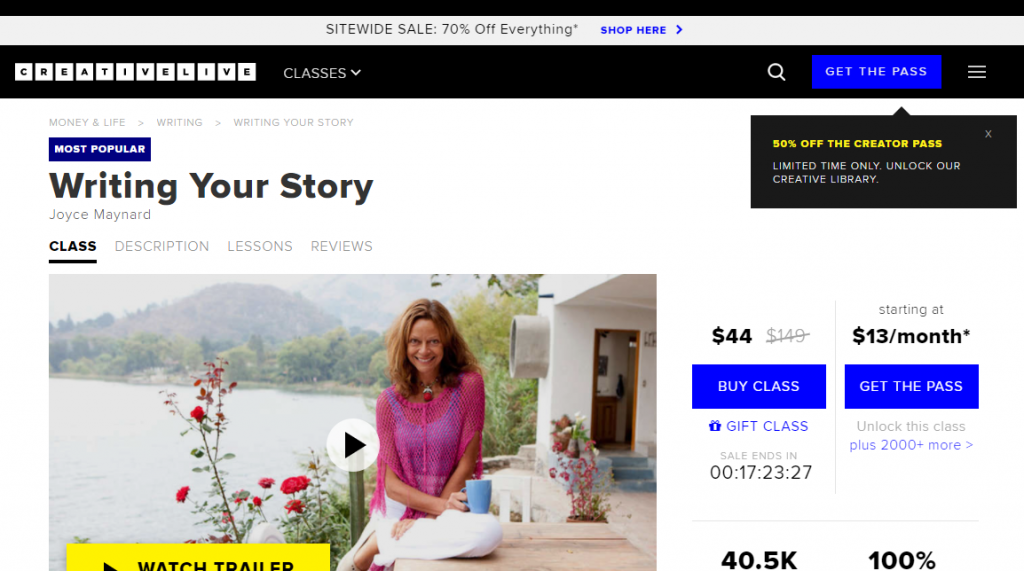
Intelligent Award: Best for Memoir Writing
CreativeLive’s Memoir course, called “Writing Your Story,” is taught by celebrated novelist and memorist Joyce Maynard, who first came to public recognition following her account of her affair with J.D. Salinger, At Home in the World . She’s written several other books of an autobiographical nature along with 11 novels. Her teaching style is engaging and idiosyncratic, and involves numerous stories from her own life. If that piques your curiosity, you’ll find her course engaging and informative, with 26 lessons that range from 5-30 minutes long and discuss how to determine what to write, how to write it, and how to handle criticism and rejection. If you enjoy Maynard’s style of teaching, note that there are several other courses taught by her, including How to Write a Full-Length Memoir and How to Write a Personal Essay.
- Price: $11/month for pass that includes 1500+ classes; $89 if you purchase just this class
- Time to complete: Five hours, 19 minutes spread over 26 lessons
Who should take this course? A great option for anyone who wants to tell their own story.
| Lifetime access | Idiosyncratic teaching style |
| Fast track option available | Few supplementary materials |
| Instructor is a gifted writer |
Grammar Lion A Grammar Refresher for All Writers & Editors
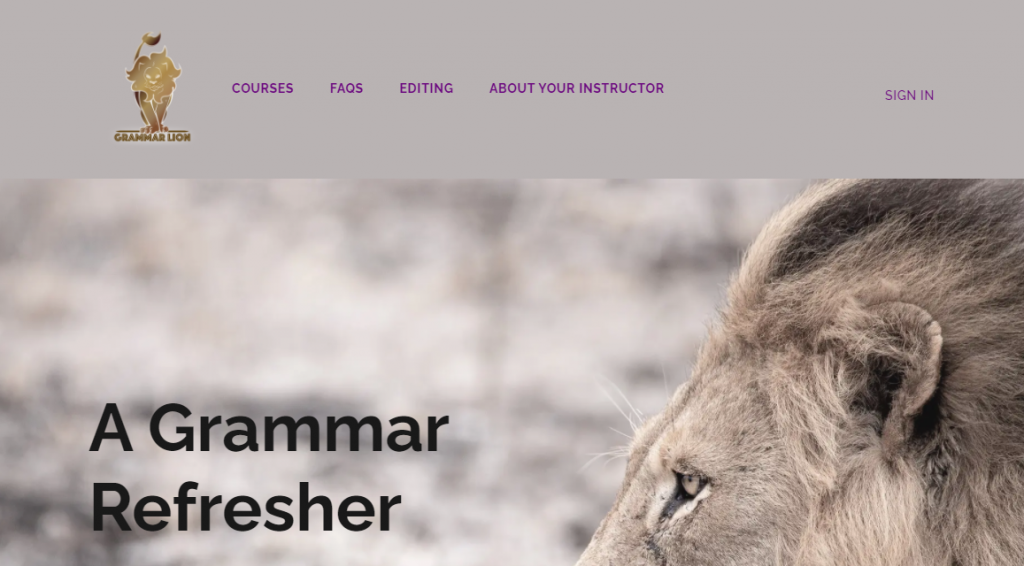
Intelligent Award: Best for Grammar Review
Having a great story to tell is important, but unless you have the basic building blocks of writing, you won’t be able to tell it. This means paying attention to grammar, and it’s what the Grammar Lion Grammar Refresher course offers. Appropriate both for those who need to learn about grammar as well as accomplished writers looking for a review of basic material, the course starts out by identifying the parts of speech, reviews sentence structure, delves into verb forms, and discusses shifts in person, tense, and structure. One whole lesson is given to matters of clarity and logic, and course extras include helpful resources and a favorite books list. The instructor is Ellen Feld, an author, editor, and educator who has taught more than 44,000 students in her online grammar refresher courses. You can connect to Feld via a discussion forum or by private email. She also offers one-on-one editing services for an additional fee.
Who should take this course? Beginners who are learning grammar for the first time and experienced writers who need a refresh in the building blocks of language.
| Easy to engage with instructor | Only 12 weeks of access |
| Discussion forum allows peer review | |
| ESL-friendly |
LitReactor Writing the Weird
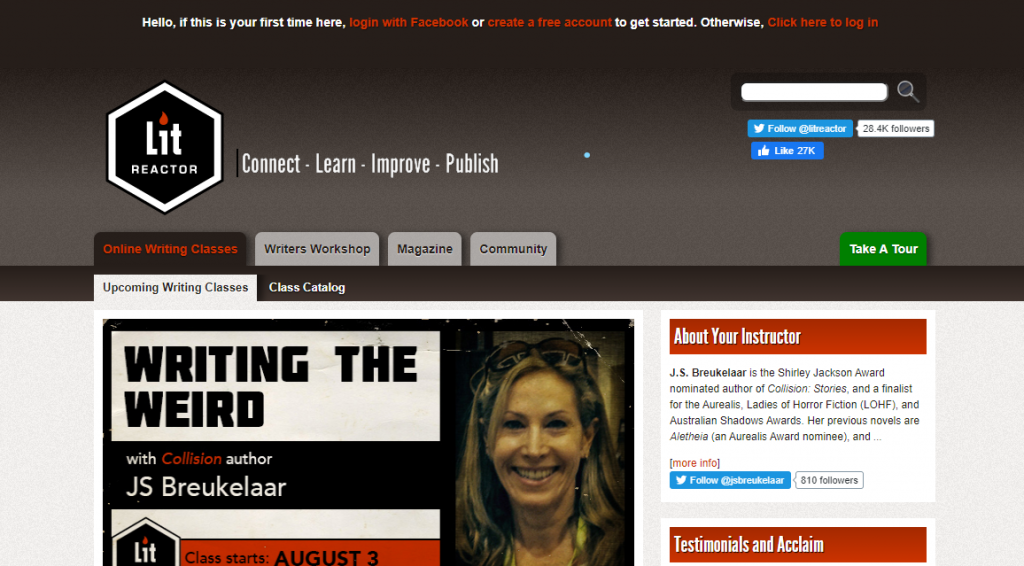
Intelligent Award: Best Online Community
LitReactor’s courses are hip and decidedly off-center. Take, for example, the course Writing the Weird, taught by J.S. Breukelaar, a finalist for the Ladies of Horror Fiction award and author of Collision . Enrollment is limited to 16 students, who take a deep dive into surreal, fantastic, and otherwise bizarre literature to find and write the human elements that make a story stand out. The four week course is divided into four topics: humanity, structure, setting, and resolution. You’ll explore the work of writers from Kelly Link to Matt Bell, and discover how conventional narrative can be a starting point for delving into innovative and speculative fiction. Each week you’ll be given writing assignments that will be critiqued by Breukelaar and your classmates, and in the fourth and last week, you’ll develop a story from start to finish based on what you’ve learned. Depending on your job title, this class may be the least likely to get you a raise. But it just may be the most fun of all our finalists.
- Price: $350
- Time to complete: 4 weeks
Who should take this course? Anyone with a taste for the off-beat and a willingness to stretch themselves and think outside of the box.
| Instructor feedback available | Lack of practical info on publishing |
| Includes judgement-free peer discussions | |
| Active online community |
Gotham Writers Workshop Fiction Writing Level 1
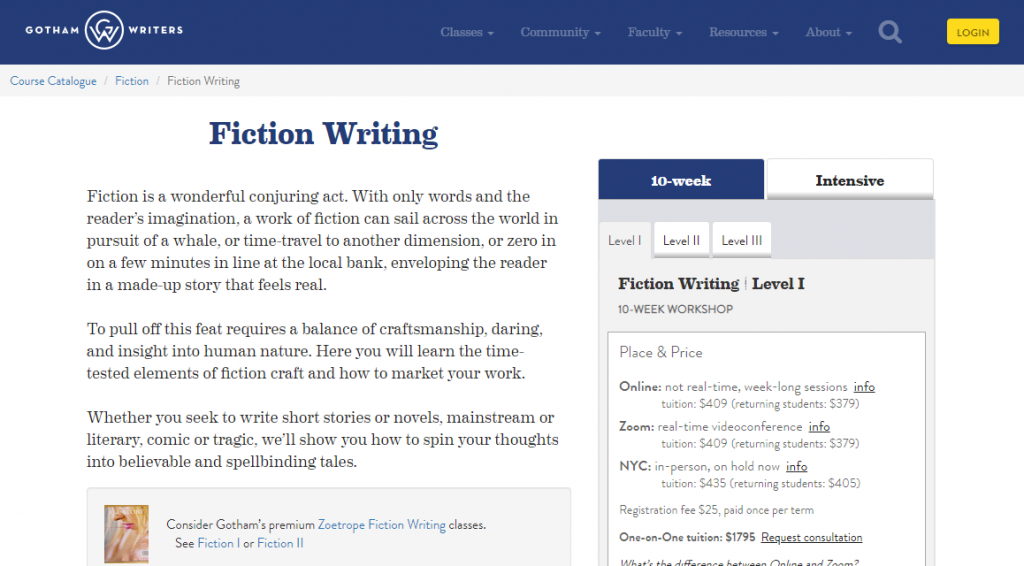
Intelligent Award: Best Supporting Materials
Gotham Writers Workshop has made a name for itself in the NYC region with in-person and Zoom classes, but it also offers well-regarded online classes. Level I classes, such as Fiction Writing I, max out with 16 students per class, so you are guaranteed personal attention from the instructor. Level II and III classes (which include the continuation of the Fiction Writing series), have a maximum of 14 students. You can access each class and do the accompanying exercises anytime during the week for the 10 week workshops. The online interface makes it easy to submit work and read critiques from instructors and fellow students. Lessons are text-based rather than video, and there is a wealth of accompanying materials, such as reading lists and podcasts, to help you extend your learning experience.
- Price: Registration fee: $25; Online: $409; Returning students: $379; One-on-one: $1,745
- Time to complete: 10 weeks
- Flexible schedule: Modified flex time, with work needing to be completed within a week
Who should take this course? Anyone who prefers text-based lessons; those who want to interact personally with their instructor and peers.
| Good interaction with instructor, other students | Class doesn’t feature videos |
| Class size is small | |
| Excellent computer interface. |
Online Course Comparison Chart
| — Top Pick | $49 per month | ✓ No prerequisites required ✓ Flexible schedule ✓ Includes verified certificate of completion |
| — Most Affordable | Free | ✓ No prerequisites required ✓ Flexible schedule X Includes verified certificate of completion |
| — Best for Multimedia Writing | $180 annual membership | ✓ No prerequisites required ✓ Flexible schedule X Includes verified certificate of completion |
| — Best for Children’s Literature | Classic Course Box Set: $365 Classic Course Daily: $185 Novel Kickstarter: $1,350 Book in a Year Plan: $1,999 | ✓ No prerequisites required ✓ Flexible schedule ✓ Includes verified certificate of completion |
| — Best for Beginners | $579.99 | ✓ No prerequisites required ✓ Flexible schedule X Includes verified certificate of completion |
| — Best Editorial Support | $149 | ✓ No prerequisites required ✓ Flexible schedule ✓ Includes verified certificate of completion |
| — Best for Memoir Writing | Get the pass: Starting at $11 per month Buy class: $89 | ✓ No prerequisites required ✓ Flexible schedule X Includes verified certificate of completion |
| — Best for Grammar Review | $87 | ✓ No prerequisites required ✓ Flexible schedule ✓ Includes verified certificate of completion |
| — Best Online Community | $350 | ✓ No prerequisites required ✓ Flexible schedule X Includes verified certificate of completion |
| — Best Supporting Materials | Registration fee: $25 Online: $409 (returning students: $379) One-on-One: $1,745 | ✓ No prerequisites required ✓ Flexible schedule X Includes verified certificate of completion |
Tips for Succeeding in an Online Writing Course
1. consider the cost, how much do online writing classes cost.
Online writing courses are offered at a broad range of price points, our cheapest option is free, and the highest is nearly $2K. Generally, the more personal one-on-one time you have with an editor or your instructor, the more you’ll pay. LitReactor, for example, has a vibrant online community and regular feedback from your instructor, and costs $350 for the roughly four-week class.
Many of our choices are paid for in one lump sum when you sign up. A few, however, follow Coursera’s model of charging by the month or year. Also, keep in mind that some of our choices, such as MasterClass, give you access to all courses for the membership fee. So, if you have the time and interest, your $180 annual fee at MasterClass could net you literally dozens of courses in a range of topics.
Will my employer pay for me to take the course?
If you work in the communications industry, or in any industry that values good, clear writing skills, you may be able to have all or part of your writing course fees paid for by your employer, especially if you can show them how the course will benefit them. It’s worth asking your boss or your HR supervisor if they will help out with the cost.
2. Get your tech squared away
You shouldn’t need any special software or hardware to take an online writing course. You will need a good internet connection and a computer that is loaded with the most recent version of your chosen browser and system files. Most courses are formatted to work on both desktop computers and other devices, such as your tablet or smartphone. One handy app if you use Google Chrome is the company’s Video Speed Controller , which allows you to speed up or slow down HTML5 video, as needed.
3. Use the right study resources
One resource that many writers swear by is a good style guide. There are several of these, and you can generally find out which style guide your company uses with a quick question to the marketing or communications department. Here are the most common:
- Associated Press Stylebook — now in its 55th edition, this is the granddaddy of them all. Used by journalists, it is also the favored choice for much web writing as well as some academia.
- The Chicago Manual of Style — a wealth of information, the 17th edition features chapters on grammar and usage, a glossary of problematic words, and extensive information on citing sources.
- Publication Manual of the American Psychological Association — in its 7th edition, this style guide is used extensively by researchers and those in science and health care.
Career Outlook for Creative Writing
The skills you learn in an online creative writing class can be applied to multiple careers and offer plenty of opportunities to share your ideas and perspectives. Few people are full-time authors. But the vast majority of professions, from legal work to health care, require those who can write clearly and concisely. According to the government’s Occupational Outlook Handbook , a full-time writer earns an average of $67,120 a year — but you can earn significantly more, depending on your job skills and professional area. Below are additional jobs related to creative writing:
Authors tell stories in a written medium. They may generate their own work based on their personal interests or areas of expertise, or they may work on commission for a third party. The writing process includes brainstorming, researching, outlining, drafting, and revising. Because authors typically work on contract, their salaries vary widely. As of May 2021, the U.S. Bureau of Labor Statistics (BLS) reports that the median annual salary for writers and authors is $69,510 . Authors receive payment through a combination of advances, royalties , and net receipts or via a flat fee .
Screenwriter/Playwright
Screenwriters and playwrights use their creative writing talents to tell stories through performance-based mediums like TV, film, and live theater. These roles are often collaborative, with writers working as part of a team that includes directors, producers, actors, and designers. Screenwriters and playwrights must generate ideas, conduct research, outline, write, and rewrite. These jobs are often contractual, with salaries varying greatly. According to Salary.com, screenwriters earn a median annual salary of $67,501 .
Public relations specialist
Public relations specialists and publicists rely on strong written communication skills to produce press releases, articles, speeches, and more. These individuals use the narrative-crafting skills they learn in creative writing classes to tell stories for their clients, who can be organizations, brands, or products. BLS projects an 8% increase in public relations specialist jobs through 2031 and reports that the median annual wage is $62,800 .
Marketing copywriter
Marketing copywriters use their creative writing skills to describe and promote brands, products, services, and more. They write for a variety of print and digital platforms, including catalogs, commercials, social media, and more. Virtually every industry employs copywriters , including finance, retail, business consulting, and IT, making this an ideal career path for individuals with expertise in a field other than writing. The annual salary range for copywriters falls between $46,255 and $59,729 , according to Salary.com.
Blogger/Web content writer
Creative writers can use the internet to share and monetize their writing . Bloggers may be self-employed and run their own blog based on their interests or they may write for an outside company as a freelancer or salaried employee. Brainstorming, researching, writing, and editing are all common elements of a blogger’s job. They may also need to create photo or video content and promote the blog. The average salary for bloggers is $47,910 , according to Salary.com.
Educational requirements for careers in creative writing
Whether a job in the creative writing field will require a specific degree or formal training largely depends on the role or the employer. Nobody needs formal training or credentials to write a book, blog, movie script, play, etc. Individuals often teach themselves through the practice of writing. Still, formal training can be helpful if you want to familiarize yourself with storytelling techniques and principles and to learn more about the particular industry you want to join. For certain jobs, such as editor or journalist , a bachelor’s degree can open up more opportunities and increase earning potential.
Frequently Asked Questions About Writing Courses
Are there free online writing courses.
Yes. In fact, one of our ten best choices is Udemy, which offers a broad range of free courses. In general, however, the old adage about how you get what you pay for holds true — the best, most well-designed courses will usually have a cost attached to them.
How long is the average online writing course?
Online writing courses vary from less than an hour to up to a year. Since most offer a flexible schedule, you can do them when you have time available. Keep in mind that in addition to lectures you’ll be watching or reading, you may also have exercises to complete, which take additional time.
Are online writing courses worth it?
They can be. Like many things in life, you will get as much out of it as you put into it. If you are taking a course for personal enrichment, all our chosen courses should benefit you. If you’re looking for professional advancement, a course with a certificate of completion may be a good idea, so you can show the certificate to your boss when done.
What are the best online writing courses?
There are probably hundreds of online writing courses — we looked at nearly 75 for this review. The best online writing courses are the ones we’ve featured above. The best writing course for your needs will depend on what you are looking to get out of it. If you’re hoping to write a best-selling children’s book, for example, the best writing class might not be Shonda Rhimes’ MasterClass. You’d be better off choosing an option like The Novelry’s program or John Matthew Fox’s Bookfox.
Interested in a degree instead?
Learn more about online degrees, their start dates, transferring credits, availability of financial aid, and more by contacting the universities below.
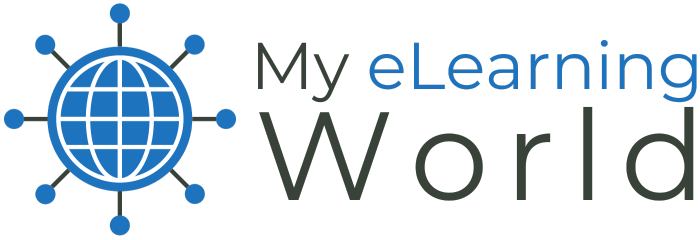
Disclosure: MyeLearningWorld is reader-supported. We may receive a commission if you purchase through our links.
The 10 Best Online Creative Writing Courses (2023 Rankings)
Published on: 03/22/2023
By Fatima Mansoor
- Share on Facebook
- Share on LinkedIn
- Share on Reddit
- Share on Pinterest
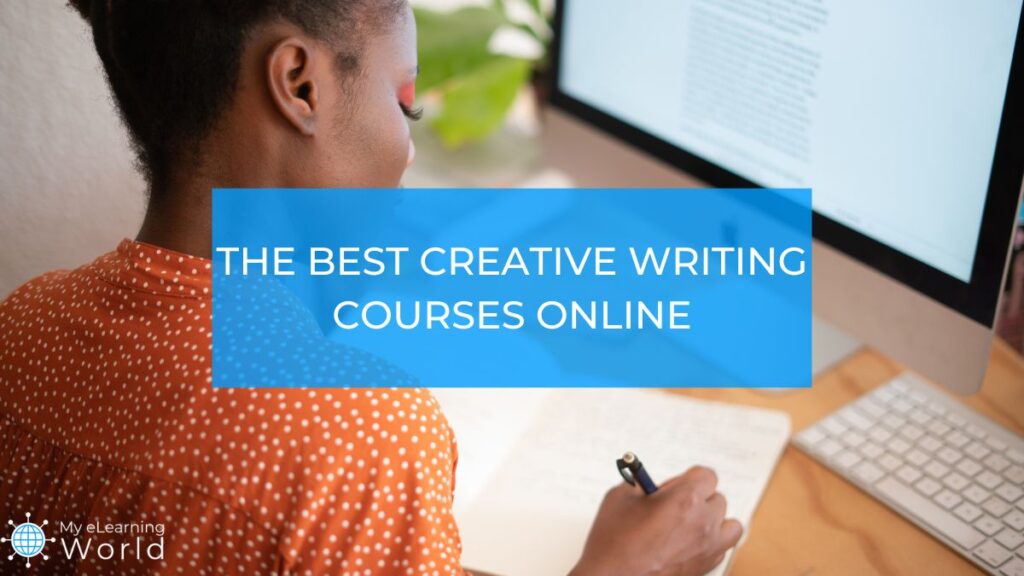
With the best online creative writing courses, you can learn the techniques and skills you need to become a better writer.
Do you feel like your writing has hit a plateau?
Are you struggling to convey your ideas and bring your stories to life?
Are you tired of staring at a blank page?
It is normal for writers to feel stuck, discouraged, and doubt their writing skills.
In the past, the solution was to enroll in a creative writing class at your local college or join a writing group. But these options are often either expensive, time-consuming, or inconvenient — or all of the above.
These days, though, there are lots of great creative writing courses online that let you learn from some of the world’s top experts all from the comfort of your own home.
You can learn how to write compelling stories, craft convincing dialogue, create vivid characters, understand structure and pacing, and much more, while enjoying the flexibility, convenience, and affordability of online learning.
Whether you’re looking to become the next bestselling author or you just want to write for fun, these courses will give you the tools you need to take your writing to the next level.
We’ve reviewed and ranked the best online creative writing courses based on a number of key criteria, including content, instructor credentials and experience, price, student reviews, and more.
This guide is fully updated for 2023 to include the best current course options so you can make an informed decision for investing in your writing passion.
Disclosure: Some of the links in this article are affiliate links, meaning at no additional cost for you, we might get a commission if you click the link and purchase.
How We Chose the Best Online Courses for Creative Writing
With hundreds of online creative writing classes out there, we wanted to help people like you find the ones that are truly the best of the best.
We reviewed dozens of creative writing courses online, and ranked them based on the following criteria:
- Curriculum quality– We carefully reviewed the curriculum of each course to make sure it was up-to-date and comprehensive.
- Instructor reputation– We checked the background and reviews of the instructor to gauge whether or not they had the experience and expertise needed to teach a great creative writing course.
- Student reviews– In addition to forming our own opinions of these courses, we also looked carefully at the reviews and ratings left by other students to get a feel for what others had to say.
- Value– Finally, we compared the cost of each course to the quality of instruction to determine which ones had the best value for what was being offered.
After going through this in-depth process, we came up with a list of what we believe are the 10 very best online creative writing courses available today.
What are the Best Online Creative Writing Classes?
Here are our picks for the top creative writing courses online in 2023…
1. Creative Writing Bootcamp: Start a Brand New Story (Skillshare)
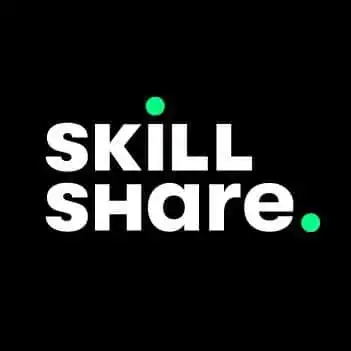
Skillshare offers a One-Month Free Trial . After that, a Skillshare subscription is around $165 per year for unlimited access to all courses. See our Skillshare review for more info.
14 video lessons, 1 hour
This course is designed to help aspiring authors of all skill levels launch their creative writing careers. Myla Goldberg, a renowned author, teaches this course, covering everything from character and plot development to dialogue writing.
Students will participate in various interactive activities and writing prompts throughout the course to evaluate their current performance and navigate their way upwards. Each lesson builds on the previous one, guiding students through creating a completely new story from start to finish, from idea generation to writing captivating opening lines.
Students can take advantage of Myla’s guidance on overcoming writer’s block, her insights into the publishing industry, and how to get their work noticed by agents and publishers.
2. Creative Writing: Crafting Personal Essays with Impact (Skillshare)

Skillshare offers a One-Month Free Trial . After that, a Skillshare subscription is around $165 per year for unlimited access to all courses.
11 video lessons, 1+ hours
This course by Roxane Gray gives you the tools to tell your story with impact. It will help you craft compelling personal essays whether you’re looking for an introduction to essay writing or an experienced writer needing a refresher course.
You’ll learn how to brainstorm essay topics, structure your essays for maximum impact, and revise your work so it’s polished.
The course also emphasizes the importance of storytelling and using specific, vivid details to bring essays to life. It will give you useful strategies for engaging your target audience and making a lasting impression, whether you write for personal or professional reasons.
Overall this course comprises a step-by-step process for writing a personal essay that captures your unique personality. You’ll also develop the skills and self-assurance you need to keep writing and hone your craft.
3. The Creative Writer’s Toolkit: Writing a Character Study (Skillshare)

5 video lessons, about 30 minutes
If you’re looking for rigorous training related to character development, this course will be the right fit for you! It is taught by a famous Wattpad writer, Lindsey Summers, who provides a detailed guide in translating vague ideas into interesting characters.
Over the course of 5 insightful video lessons, Lindsey will discuss the core aspects of character development, such as using an archetype in the right context and using character flaws to drive the story.
Whether a novice or an aspiring author, you can sign up for this course to study character creation and upskill yourself to use unique approaches in different scenarios.
4. Teaching Writing For Television (Masterclass)
Plans starting at $15/month billed annually
30 video lessons, about 6.5 hours
Shonda Rhimes’ Masterclass course on writing pilot scripts is another empowering and informative course.
Rhimes has been working in television for over 20 years and has created some of the most popular shows on TV today, including How to Get Away With Murder, The Catch, Grey’s Anatomy, etc. Her experience working with writers of various genres qualifies her to teach you how to write a catchy pilot script.
The course covers everything from developing your idea into a pitch to writing your first draft.
Rhimes walks you through each step of the process, providing clear instructions and examples from her own experiences and those of other writers with whom she has collaborated over the years. All these real-life examples give you a good head start, shed light on common pitfalls, and accelerate your growth as compared to learning on your own. She also gives you time estimates for each section of your script so you can plan accordingly.
This course is ideal for anyone interested in learning more about writing television shows but is intimidated by the process or lacks access to an experienced professional who can provide feedback on their work.
5. Creative Non-Fiction Writing – You Can’t Make This Stuff Up! (Udemy)
Regularly priced at $19.99
27 lessons, 1 hour and 50 minutes
If you’re a writer who’s fond of writing biographies, history, and philosophy, this course will make you a pro at the non-fiction genre. Led by the mastermind of the non-fiction genre, Trace Crawford, this course will teach you the primary concepts of creative non-fiction writing.
You will learn to develop story plots, use literary devices to make content more impactful, and structure a narrative. Trace believes comprehending practical aspects of the non-fiction genre makes you an outstanding writer. Topics such as primary and secondary research and navigating ethical concerns when writing about people and events are all crucial to convey your work to the target audience.
Apart from the core concepts, this course includes skills such as pitching, submitting work to publishers, and using the right medium to create your brand in the market.
In essence, this course is an excellent opportunity to learn non-fiction writing, whether you want to pursue it as a side hustle or a profession.
6. Secret Sauce of Great Writing (Udemy)
Do you feel like your mediocre writing is holding you back? Look no further than the “Secret Sauce of Great Writing” course on Udemy by former Wall Street Journal editor Shani Raja!
Shani teaches you the insider secrets to great writing that only a seasoned professional could know. He discusses the four main ingredients of great writing: simplicity, clarity, elegance, and evocativeness. With his years of experience in the industry, Shani knows exactly what it takes to write content that hooks your readers.
You’ll also get the chance to brush up on some basics, such as sentence structure, grammar, punctuation, style, tone, and storytelling. With Shani’s guidance, you’ll become a pro at writing informational and commercial content.
7. Creative Writing Specialization (Coursera)
Included with 7,000+ other courses with Coursera Plus subscription ($59/mo). Try Coursera Plus free for 7 days.
About 10.5 hours of video lessons
Are you a budding writer yearning for a community that values the art of creative writing and supports your journey of self-expression? This Creative Writing Specialization on Coursera is the perfect course for you.
You will learn different forms of creative writing, such as fiction, non-fiction, poetry, and screenwriting. What makes this program unique is the exceptional instructors who are experts in their fields and passionate writers.
The program’s peer review process enables participants to share their work with other writers and get regular feedback. Such interactive lessons foster a sense of belonging and the opportunity to grow no matter your proficiency level.
You’ll also learn how to create engaging stories that capture readers’ attention, write poetry, develop characters, develop intriguing dialogues, and write descriptive settings that readers can relate to.
The program’s main learning outcomes include gaining a deep understanding of the different genres of creative writing and developing the necessary skills to write effectively within each genre.
You’ll also learn practical tips on how to get published and build your portfolio.
Overall, this specialization on Coursera is more than just an online course; it’s a community of writers who understand the struggles and joys of creative expression.
Students have the option to audit the course for free. However, you’ll have to pay a fee if you want a certificate upon completing the class.
8. Writing Your Story (CreativeLive)
Plans starting around $13 per month
26 video lessons, 5+ hours
Another area of non-fiction writing is memoirs. Many people are willing to write about their personal experiences and memorable moments. This is where Joyce Maynard comes in and sheds light on the skills needed to write a profound memoir.
The primary motive of this course is to discuss the outline of memoirs and the right methodology to inculcate drama, relevance, and authenticity. Joyce teaches how to organize your writing and use sensory devices to make your memoirs engaging.
Overall, this course gives you all the knowledge needed to pen down your personal perspective. You’ll be able to write a memoir that strikes a chord with the audience and leaves a lasting impression.
9. Grammar Lion: A Grammar Refresher (Grammar Lion)
100+ lessons
Essentially, this course covers the fundamental English grammar lessons to enable budding writers to polish their language and avoid frequent mistakes. After all, a competent writer must be proficient in grammar.
Students will learn parts of speech, sentence structure, and punctuation. They will also learn how to compose sentences and paragraphs and rectify common grammar mistakes.
Apart from grammar, you will also improve your analytical and critical thinking abilities via various case studies, which can be useful in both academic and professional situations.
This is the perfect course for anyone wishing to enhance their communication and writing skills in general.
Overall, these lessons will provide the foundation necessary to write with clarity, precision, and assurance.
10. Creative Writing: How to Start a Writing Habit (Skillshare)
Skillshare offers a One-Month Free Trial . After that, the Skillshare price is around $165 per year for unlimited access to all courses.
7 video lessons, about 11 minutes
Becoming a proficient, creative writer requires effort, determination, and guidance. If you are just getting on the bandwagon and looking for a well-defined roadmap, this course on Skillshare will be a worthwhile investment.
A renowned writing coach, Whitney Strong, offers actionable advice to help you hone your creative thinking skills and gives you direction to develop a writing habit.
Strong encourages students to maintain a notebook from the beginning of the course. In this way, one can establish a writing routine that fits their lifestyle and goals and learn techniques for writing down impactful ideas.
The abundance of practical advice by Strong makes this course stand out. She does not only focus on the methodology of writing engaging stories or dialogues but also emphasizes conceptual learning.
She discusses abstract concepts and provides students with specific writing exercises and prompts to help them overcome common writing obstacles and develop their writing voice. Whitney also shares her writing experiences, providing insights into the creative process and the challenges that all writers face.
The course is appropriate for writers of all levels, from novices looking to improve their skills to seasoned writers looking to establish a writing practice.
A Final Word on the Best Online Creative Writing Courses
With so many great online creative writing classes, it’s easier than ever to study from acclaimed authors, receive insightful comments, and interact with a community of professional writers who share your interests.
Remember, most of these course providers offer free trial periods, giving you a great chance to check out classes at no cost to see which ones you like best.
Have any questions about our guide to the best online creative writing courses? Leave a comment below to let us help.
The 9 Best Zoom Alternatives for Meetings & Conferences (Free & Paid)
How to elevate your presentations for school or work, leave a comment cancel reply.
Save my name, email, and website in this browser for the next time I comment.

You are using an outdated browser. Please upgrade your browser to improve your experience.
The Home of Creative Writing
Arvon is a charity that runs creative writing courses, events and retreats both in-person and online. Our courses are tutored by leading authors and include a powerful mix of workshops and individual tutorials, with time and space to write, free from distractions of everyday life. Grants and concessions are available to help with course fees.
ARVON COURSES & RETREATS
Masterclass: the poetic line.
Dashes, slashes and white space
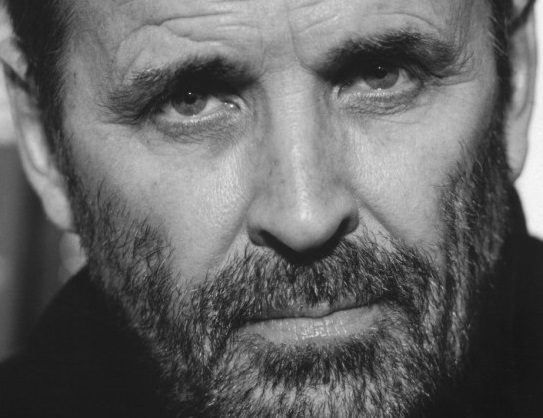
- Screenwriting
Online Writing Day: Screenwriting
Transform your screenplay

- Totleigh Barton
Poetry , Non-Fiction
Residential Writing Week: Poetry & Memoir
New ways of looking at the natural world

- Non-Fiction
Masterclass: Writing Difficult Stories
‘But how do I write about…that?’

Online Writing Week: Non-Fiction
People and places

How I Write: Angela Hui
Q&A and Reading
Masterclass: Crime Fiction
Feeling the solve

Residential Writing Week: Poetry
Landscape and the body

“Every time I’ve taught at Arvon - going back over fifteen years now - I’ve seen how much difference just a handful of days can make in the life of writers. There’s a perfect mix of tutorials, writing time, socializing, and discussion - all those elements come together to create an atmosphere in which writing projects move in that longed-for but often unattainable direction: forward.”
— Kamila Shamsie

ARVON AT HOME
Our online programme of courses, events and writing support
Virtual versions of our famous Writing Weeks, plus Masterclasses, free How I Write events, Online Writing Weekends, Writing Days and more . . . all accessible from the comfort of your sofa.
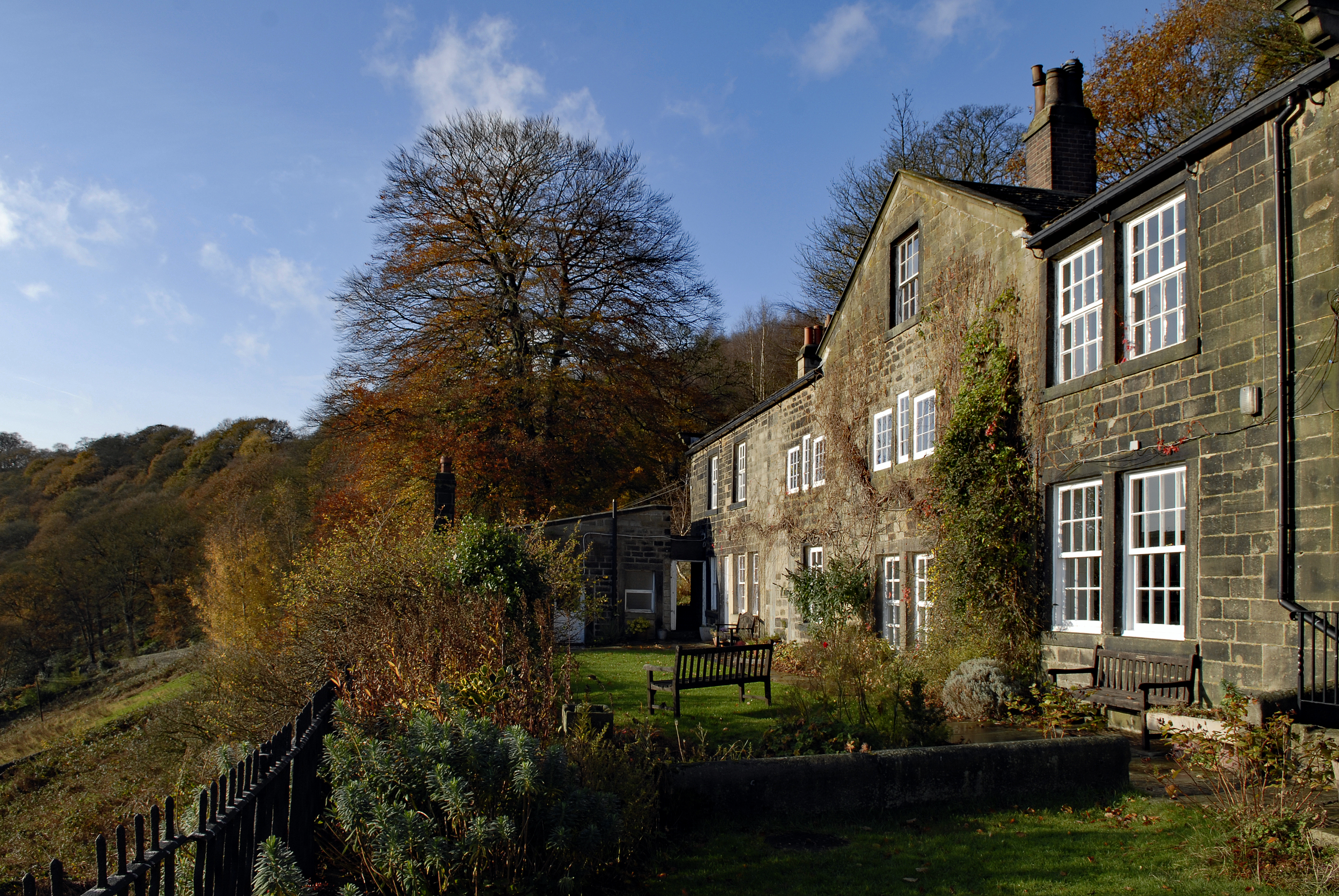
SUPPORT ARVON NORTH
Arvon North is an ambitious capital project to adapt Lumb Bank into a beacon of creativity for the North
Help us transform Lumb Bank into an engine-house for creative writing development in the North of England, connecting the rich literary collateral of the region with a community of writers locally, regionally, nationally and globally.

CLOCKHOUSE WRITERS' RETREAT
Give your writing the time and space it deserves with Arvon’s dedicated Writers Retreat at The Clockhouse
The Clockhouse is specifically designed for writers on retreat. It has four apartments for writers, each with bedroom, study-lounge and bathroom. All food is provided for you, so you can spend your time as you please.
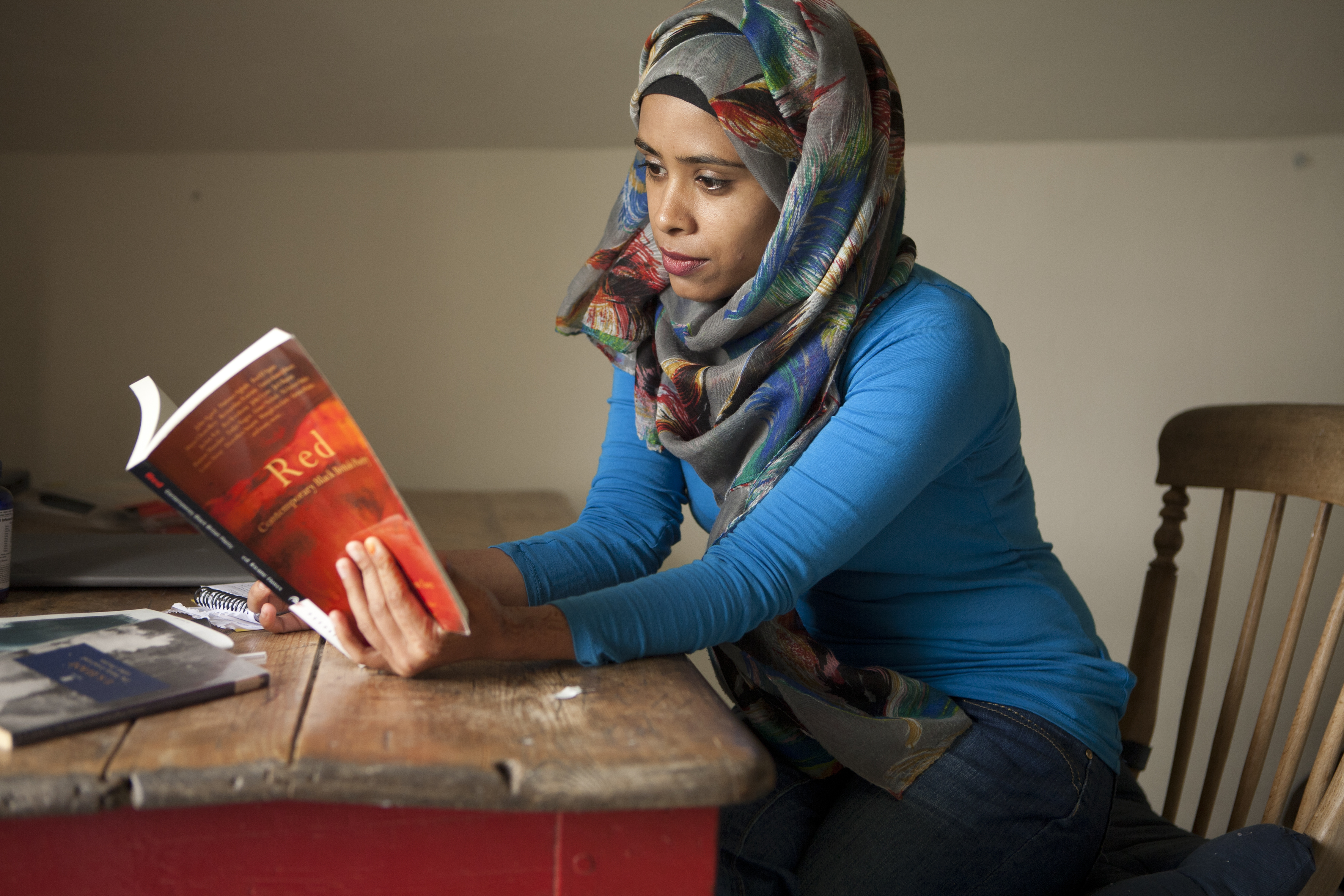
DONATE TO ARVON
Do you believe that everyone should have the opportunity to unlock their creative potential?
Arvon is a charity that believes everyone deserves the freedom to imagine, write and explore ideas regardless of their age or financial background.
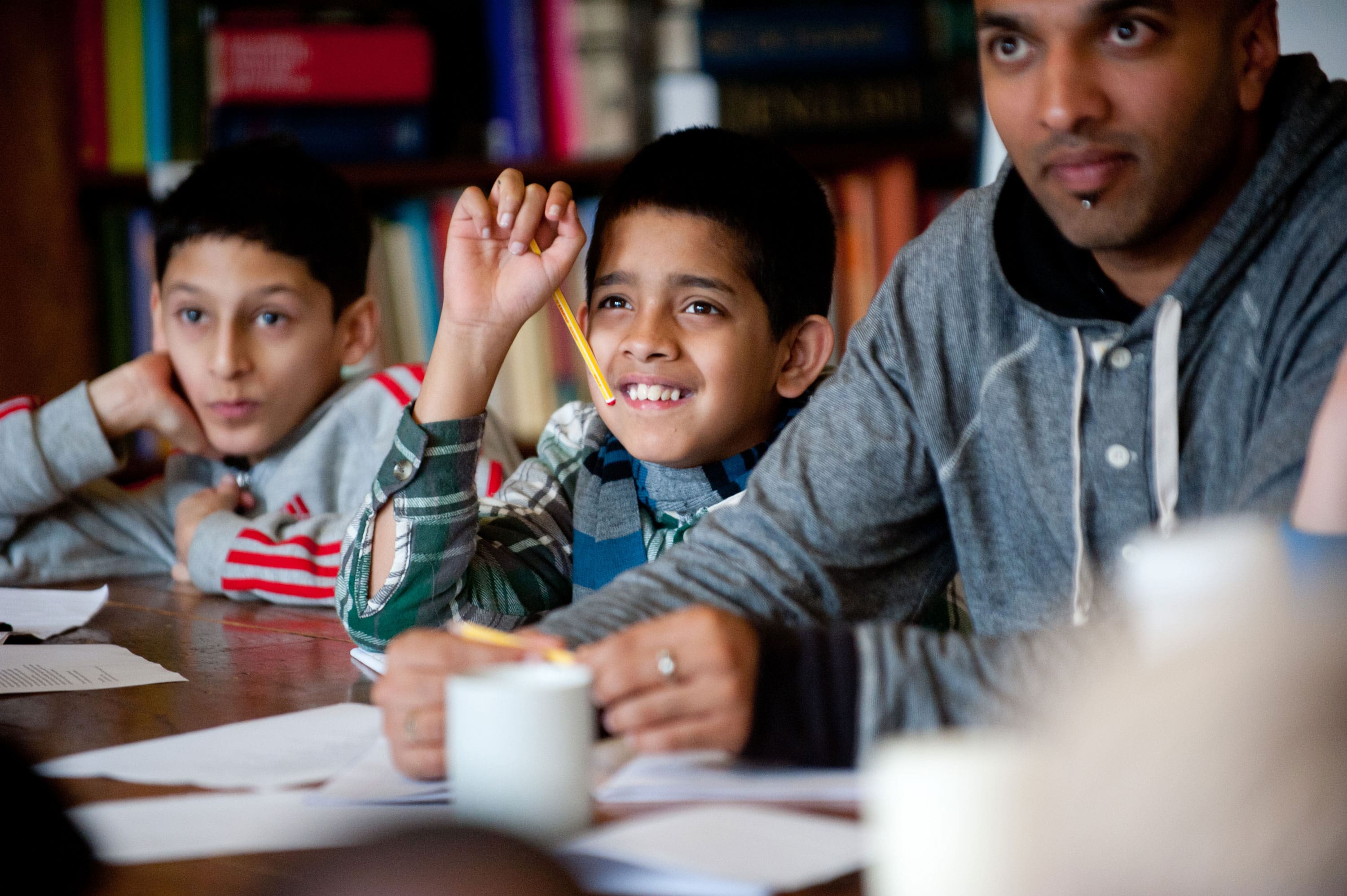
OUR SCHOOLS & GROUPS WORK
We offer residential weeks for schools, young people and adult groups.
Our weeks for schools and groups follow the same pattern as our adult course programme – led by two professional writers, with tutorials, group workshops, and time and space to write.
ARVON BLOGS
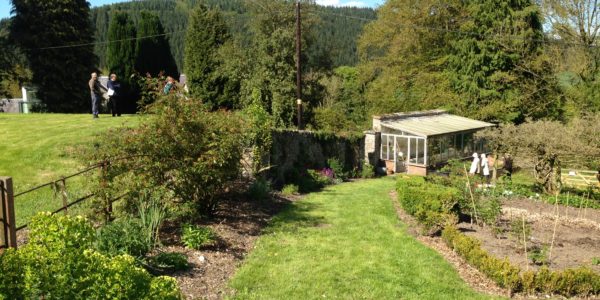
My Arvon Week: Daphne Pleace
13 Aug 2024 / My Arvon Week
I consider myself to be quite well-travelled in the UK – always finding new places and new ways to write about…

Northern Writers’ Awards 2024
26 Jun 2024 / Arvon Friends
New Writing North celebrated its 25th anniversary with an awards ceremony honouring writers in fiction and poetry. As part of the…

Quay Words and Arvon Live: Fiction Writing Day
05 Jun 2024 / News
Do you have a novel writing project that needs attention? Perhaps you need some technical help, are looking for tips to…
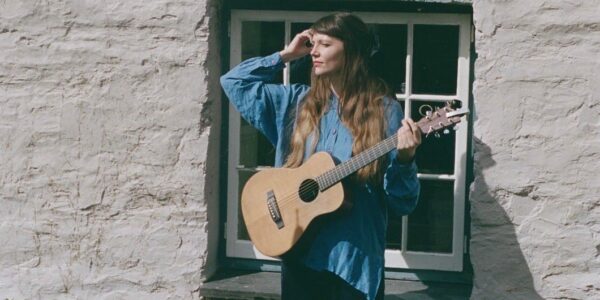
My Arvon Week: Jessica Eve Watkins
15 Apr 2024 / My Arvon Week
A preview of Jessica Eve Watkin’s experience on a week-long writing retreat at Arvon’s writing house, The Hurst. “ ‘The…
JOIN OUR MAILING LIST
Want to know what's coming up in the next week? Arvon’s newsletter is the best way to avoid missing out on anything - from new and upcoming courses, to Arvon giveaways and writing and self-development opportunities.
FIND A COURSE OR RETREAT
- Inua Ellams' Spring Season
- Residential Writing Course
- Online Writing Week
- Masterclass
- Masterclass Recording
- How I Write
- Online Five Week Course
- Residential Tutored Retreat
- Online Writing Day
- Residential Retreat
- Children and Young People's Events
- Starting to Write
- Children & YA
- Short Story
Privacy Overview

Ebooks, Publishing, and Everything in Between
- Downloads & Pricing
- Advertising
2023 Best Online Writing Courses: 600+ Options for All Levels
- on Jan 18, 2023
- in Writing Tips
- Last update: January 28th, 2024
- at 10:16 am
Don’t forget to check out our list of 2024 writing courses !
Like any skill, there is always room for improvement when it comes to writing. This applies whether you are a beginner or if you’ve already published a best-seller. A great way to hone your writing skills is to join a few writing courses, and you can surely find some here that suit your needs.

In our 2023 writing courses list, there is a wide variety of online writing courses that will help you achieve your writing dreams.
Write Your Novel! The Workshop With Jack
Provided by writers.com, crafting a story or novel chapter using forward-moving tension, (live workshop) starting off right: how to build a blog, grow an audience & make money, fiction writing | level i, provided by gotham writers, plot 1: mechanics, novel first draft | level i, screenwriting | level i, screenwriting | level ii, establishing a creative writing practice, provided by stanford university, novel i: the powerful beginning, novel iv: manuscript preparedness, one-on-one tutorial: novel, mastering the personal essay with the masters, adventures in travel writing, writing short fiction: the devil’s in the details, a ticket to the truth: getting started in creative nonfiction, 15-week online screenplay workshop, provided by new york film academy, 15-week online television spec workshop overview, 15-week online screenplay story & structure workshop overview, 15-week online screenplay rewrite workshop, memoir writing | level i, essay & opinion writing | level i, memoir writing | level 2, poetry writing | level i, observers of the natural world: writing the personal nature essay, children’s book writing | level i, playwriting | level i, humor writing | level i, romance writing | level i, food writing, travel writing, creative non-fiction 101 | level i, feature article writing | level i, business writing, creative nonfiction 101 | level i, character development, dialogue writing, songwriting | level i, stand-up comedy writing | level i, plot 2: machinations, how to start your novel and keep it going, be your own developmental editor: shape your manuscript for publication, starting to write, writing autobiographical fiction, creative writing 101 | level i, writing scripts 101, novel ii critique, tv pilot—a | level ii, romance writing | level 2, writing circle workshop: writing for happiness, healing, and health (session 2), reading fiction | level i, children’s book writing | level ii, keeping a writer’s notebook, provided by the loft literary center, how to write based on a true story, provided by screen writers university, powerful endings to hook your reader, science fiction & fantasy writing | level i, fiction writing | level 1, grammar 1: the basics, level i online tuesdays – winter 2023, provided by international writers collective, video game writing, pen on fire, level ii online wednesdays – winter 2023, creative nonfiction and the personal essay, humor is the new black, poetic prose: the prose poem, de novo: how to build your own fantasy or sci-fi world, observing what’s vivid in prose and poetry, write your world: express your creativity through article writing, blogging, and essays, blog basics | level i, how to get published | level i, advanced television rewriting workshop, beginning feature film writing, level ii poetry online mondays – winter 2023, introduction to digital storytelling, writing the future is a radical act: science fiction and fantasy, like a thread through the labyrinth: finding the arc of your memoir, write as you are: learn what your draft is telling you, advanced novel writing: craft, workshop, revision, poetry craft & workshop—reset, crowd control: making your writing irresistible to readers, short story nitty gritty, writing the braided essay, a place at the desk: writing fiction for children, writing for night owls, abolitionist fiction, fiction: eight weeks, eight drafts, finding wonder in winter and the words while outside and in motion, creative nonfiction: eight essays, eight weeks, first steps into writing, legacy writing: capturing moments for future generations, poetry narratives, focus on craft in short fiction, the first fifty pages of the novel, novel first draft | level ii, anatomy of a premise line: story and premise development for writing success, anatomy of a premise line: how to use story and premise development for writing success, the craft of poetry, writing short stories with the empathic approach, introduction to creative nonfiction, making the space for poetry in our world: intermediate poetry, writing through loss in creative nonfiction, introduction to fiction, self-publishing for dummies, fiction: work in progress, using color to manifest character in your fiction, introduction to writing for television, proper formatting technique: script format made easy, beyond the memoir: writing personal, creative nonfiction (and getting it published), writing with consistency and courage, personal essay writing, the loft poetry apprenticeship 2023, the loft’s novel writing project 2023—online cohort, how to craft a poem, crafting the romance novel, plot your novel, style and sense: bring your writing to life, what to do when your characters fall in love: writing romance in any genre, the loft’s novel writing project 2023—in person cohort, the loft’s creative nonfiction and memoir writing project 2023—online cohort, writing the series bible: developing your tv series, “flash” memoir: life stories in 500 words or less, get inspired: small books, big ideas, creating the visual journal, grammar 2: expertise and finesse, crafting character in memoir, blog writing, mastering the elements of fiction, scene study: strengthen your writing with compelling scenes, the spirituality of poetry, ten weeks to your feature film, in living color: writing in vivid hues, reclaiming language through form: a poet’s guide, find inspiration in the archive for your creative nonfiction, writing spontaneously: how to let your stories surprise you, rapid story development: a master plan for building stories that work, writing through struggle, mystery writing, twoness poems, unbound: teen creative writing, harnessing your novel’s plot and character development, listen to this: writing poems about music, introduction to screenwriting: a class for writers of color and indigenous writers, essentials of character development: how to create characters that move and breathe and can’t stop talking, manuscript workshop: writing for young readers, the foundations of poetry, non-fiction book proposal, hit send: publishing short nonfiction | level i, nonfiction book proposal | level i, poetry writing | level ii, the bleeding, pounding heart of prose: the art and craft of the sentence, healing the wounded writer: writer’s journal to recover or build writing practice, write your drama pilot in six weeks, the fundamentals of screenwriting: give your script a solid foundation, watching movies: learn from the masters and become a better writer, introduction to poetry, introduction to playwriting, decolonizing fiction, creative maps for creative writing, how to begin a poem, experimenting with form: the hermit crab essay, comics and graphic novels, how to write a novel: structure & outline, provided by edx, writing mindfulness: sensual world/poetry mind, poetry and performance: slam poetry 101, finding community in literary magazines: a class for writers of color and indigenous writers, the healing power of poetry, poems of all sizes: haiku, tanka, and japanese poetic forms, be a better copywriter – fast, writing personal essays that get published, poetry for newcomers, when narrative structures explode, from novice to novelist, creative writing through chronic illness, write your screenplay in six weeks, intimacy and conflict: creating a scene, journaling for self-care: writing through challenging times, writing delight: cultivating gratitude in the brief essay, writing the unsaid: a generative workshop, fiction narrative: finding the right voice, it’s all relative: writing our relationships in creative nonfiction, evil and empathy: how to create complexity in villains and other characters, blogging for beginners, writing middle grade fiction, what’s at hand: writing poems from the overlooked documents that fill our lives, memoir writing: inspiration and craft from contemporary best sellers, american mythology through poetry and prose, children’s writing for beginners, write your life: an essential guide to writing memoir, flash fiction: writing the short-short story, contemporary fiction: writing the biosphere, beyond google: research strategies for historically accurate writing, saving face: the old-fashioned art of physical description & how to make it new, the literary essay, the lyric essay, finding confidence in the braided essay: a craft and empowerment workshop for literary nonfiction, poetry as survival: writing the personal lyric, reading and writing essays of wonder, gratitude, and delight, video game writing part 2, death riding shotgun: how awareness of our mortality impacts poetry, research and writing: children’s nonfiction for education, finding the poet within, getting your word out: polishing, submitting, and marketing your writing, memoir on the stage: writing the one-person show, building vivid worlds in your creative nonfiction, start writing fiction, provided by future learn, scrivener 102, how to write a novel: writing the draft, next-level creative nonfiction: elevating essays, memoir, travel writing & literary journalism, earth as home: new nature & place-based writing, hook, line, and sinker: winning them over with your first three pages, create compelling characters with tarot, 15-week online television pilot workshop, provided by contact@gothamwriters.com, the hero’s journey for storytellers, provided by writers@writers.com, 21 days to your screenplay treatment, provided by screenwritersuniversity@aimmedia.com, provided by contact@gothamwriters.com, provided by contact@gothamwriters.com, in(verse): poetic techniques for non-poets, provided by contact@gothamwriters.com, provided by contact@gothamwriters.com, beginning television writing, provided by screenwritersuniversity@aimmedia.com, scripts in focus | level i, provided by contact@gothamwriters.com, provided by contact@gothamwriters.com, story development and outlining, provided by screenwritersuniversity@aimmedia.com, your creative journey, provided by screenwritersuniversity@aimmedia.com, the watching eye/thinking mind: writing flash fiction, provided by writers@writers.com, provided by contact@gothamwriters.com, in bloom: nature writing workshop, opening the door to poetry, untie the tropes: write in-depth ya protagonists, food writing: meals and manuscripts, provided by writers@writers.com, 4-week online screenwriting – story & structure, 4-week online screenwriting – television pilot, action: teen scriptwriting, provided by contact@gothamwriters.com, provided by contact@gothamwriters.com, true story: teen creative nonfiction | level i, provided by contact@gothamwriters.com, science fiction & fantasy writing | level 2, provided by contact@gothamwriters.com, provided by contact@gothamwriters.com, fantasy writing immersion, fantastical stories: hands-on magic, myth, & science, write your world: imagination & everything around you, dark hauntings: bending boundaries in writing, small stories; big sci-fi, fantasy, & horror, thrill a minute: twisted scripts, beautiful monsters—writing horror and science fiction/fantasy poetry, provided by contact@gothamwriters.com, provided by contact@gothamwriters.com, where to begin: jumpstart your fiction, happily ever after (at least for now): paranormal romance novels, stranger than fiction: spy thrillers & writing real world, building a novel: from paragraphs to pages, fun with fiction, elements of fiction: put the story in your story, short story: a to z—creative short story writing, narrative power: scripts & stories that matter, queer literature, poetry & community: where do i fit in, my story: personal narrative for college & scholarship essays, powerful poetry, in the beginning: an introduction to creative nonfiction, writing in place: exploring the city through writing, provided by contact@gothamwriters.com, fantastical me: writing worlds, build your own fantasy world, power of the pen: how to convince people of anything, writing & making spectacular worlds, screenwriting for teens, manuscript review, private coaching – single session, private coaching – four sessions, private coaching – eight sessions, try write your book, provided by become a writer today, essay writing: how to find the story in you – and sell it, provided by amy paturel, transmedia writing, provided by coursera, writing professional email and memos, academic english: writing specialization, better business writing in english, writing your world: finding yourself in the academic space, sharpened visions: a poetry workshop, writing for young readers: opening the treasure chest, good with words: writing and editing specialization, creative writing specialization, effective communication: writing, design, and presentation specialization, interviewing and resume writing in english specialization, memoir and personal essay: write about yourself specialization, script writing: write a pilot episode for a tv or web series (project-centered course), writing in the sciences, wired for story: how to become a story genius, provided by creativelive, writing your story, starving to successful: how to become a full-time writer, how to write a personal essay, write your book: start strong and get it done, how to write and publish an ebook, how to write a full-length memoir, the anatomy of a scene, effective e-mail and newsletter marketing, how to nail your first three pages, write a story, screenwriting: the art of the first draft, how to get emotion onto the page, overcome writer’s block, how to tell your story, writing bios that get noticed, take your writing from good to great, how to fulfill reader’s expectations, writing emotionally engaging emails, the heart and craft of writing, write copy that compels and sells, storytelling for business, get your writing done, academic writing made easy, how to write an essay, academic and business writing, a beginner’s guide to writing in english for university study, an intermediate guide to writing in english for university study, an introduction to screenwriting, technical report writing for engineers, a-level study boost: unseen poetry and the creative process, discovering science: science writing, the art of storytelling, provided by masterclass, writing thrillers, creative writing, writing for young audiances, writing class, dramatic writing, reading and writing poetry, creating authentic emotional conflict, your screenplay sales tools: loglines, one sheets, and query letters, creating high concept screenplay ideas, developing your reality tv idea, world building: crafting screenplays readers can step into, writing for reality tv, writing the action feature film, writing the adaptation, writing the animated feature film, writing the family feature film, basic premise and story development for screenwriters, mastering the conventions of horror writing, the creative writer’s toolkit: writing a character study, provided by skillshare, writing for consistency: finding your creative voice, writing and editing: polishing a manuscript, beginners creative writing class (short story), creative writing masterclass: kickstart your novel, writing a better main character, writing personal essays: craft a powerful, unique piece in three steps, descriptive writing: crafting vivid, immersive scenes, learn to write movies: screenwriting step by step, writing suspense: how to write stories that thrill in any genre, creative non-fiction: write truth with style, science fiction & fantasy: creating unique and powerful worlds, 5 techniques to generate creative writing ideas, creative writing for all: a 10-day journaling challenge, creative writing bootcamp: start a brand new story, the writer’s toolkit: 6 steps to a successful writing habit, storytelling 101: character, conflict, context & craft, creative writing: crafting personal essays with impact, creative writing: using your mistakes to power your personal essays, story structure: 8 essentials for outlining your novel or script, writing funny: introduction to humor writing, writing fiction: create a retelling of your favorite story, introduction to fiction: how to write the first draft of a short story, write your screenplay: the craft of story, structure and script, how to write a novel: step-by-step (creative & fiction novel book writing), writing the short story–getting started, how to write an original short story, copywriting for beginners: how to write web copy that sells without being cheesy, writing authentic fiction: how to build a believable character, writing character-driven short stories, creating content that people love to read (and google loves to rank), creative nonfiction: write truth with style, writing fiction: 4 exercises to discover and write your story, instagram poetry: create personal, visual vignettes for self-expression, romance short story – creative writing & outlining, provided by udemy, how to write irresistibly compelling stories, writing short stories: the essential guide, learn how to write just about anything, write stories with a twist, the easy way to write short stories that sell, how to write a short story, story – the key to writing a best-selling non-fiction book, the basics of writing a compelling short story, short story masterclass: learn from a prizewinning author, the blueprint to writing your first book, write blockbuster books readers love with dead easy dialogue, writing a book: revision, learn the quickest way for writing a book that i use, creative writing for beginners – writing creative prose, write a non-fiction book in 4 weeks, how to write a non-fiction book fast without writers block, write: plan, write, edit and publish your non-fiction book, how to stop stalling and write your book, how to write your non-fiction book with the flat plan method, how to write a book in a week, get your book fit, how to write 1 book in under 6 hours, kindle complete course: book writing, publishing, marketing, how to write a how-to book, writing with fantasy, speed writing for non-fiction writers, how to write a non-fiction book that actually sells, endless non-fiction book ideas – you’ll never run out again, creating and publishing your children’s book, how to create non-fiction books that sell themselves, write kindle books ridiculously fast: 1 book every month, playing with time: use pacing to keep readers wanting more, create entire non-fiction book outlines in minutes – use now, how to write a great children’s book, write a book – share your story, write a bestselling non-fiction book in less than 20 hours, write now write your book and spread it like a virus, how to write a book in 2 weeks, how to write a book and become a real best selling author, create your first kindle book in 30 days with your iphone, writing science fiction and fantasy, reverse engineer riveting fiction & write best selling books, the foundations of fiction (writing mastery), writing fictional police interrogations, improve your fiction writing and finish more stories, write your best fiction and get it published, non-fiction writing workshop, beginner’s guide to writing mystery fiction, how to generate new ideas and improve your fiction writing, fiction writing – write, polish and publish your first novel, writing fiction that sings: write novels with great voice, writing productivity: release fears to write great fiction, young adult fiction writing workshop, fiction writing: a complete novel outline chapter by chapter, punch them in the gut: writing fiction with emotional impact, writing that moves: write novels that keep pages turning, fiction for young writers (writing mastery), developing fiction writing skills, the disobedient writer: break the rules and free your story, reverse engineer riveting fiction 2: the next level, how to become a romance writer, perfect pacing for fiction writers: nailing act one, mastering character arcs, fiction writers: learn how to create a perfect kindle ebook, how to write awesome dialogue for fiction, film, & theatre, introduction to the art of comedy, write a bestselling novel in 15 steps (writing mastery), novel writing workshop, novel writing: viewpoint, voice and tense, novel writing: get published, novel writing: creating characters, novel writing: dialogue, beginnings and endings, writing novels and query letters: write fiction that sells, novel writing: conflict, suspense and mystery, accredited novel writing course – master your inner writer, creative writing novel workshop – success with characters, novel writing: structure your story, novel writing: adding hollywood magic to your writing, find time to write your novel, novel writing: manuscript editing, novel bootcamp; imagine, plan and start writing that book, romancing your novel, how to create great characters for your novel or screenplay, how i wrote a nanowrimo novel in 6 days, 25 questions to ask when you write your novel, write a hit novel or script using the secrets of suspense, how to write a novel for beginners, creating characters for fiction, write bestselling characters – create a successful novel, novelizations: how to adapt a screenplay into a novel, revise and edit your own novel, write a novel now write a book that sells, creative writing: write your novel by watching movies first, how to outline your romance novel – fast, how to write your own horror novel, creative writing – get writing, keep writing, creative writing: creative exercises for new writing ideas, write a book creative writing skills for beginner writers, creative writing – writing tips part 1, creative writing – writing tips part 2, the creative writing course – write a newsletter or a book., writing a book: managing ideas, creative writing novel workshop – success with theme, introduction to creative writing: getting started, how to write characters for a story : creating characters, creative writing – plot scenarios month 1, accredited creative writing course – master tips for writing, writing a book: the first draft, how to develop your own author style, how to write an award-winning sf short story, bring your character to life, why i write: embrace the power within & write like orwell, how to write that amazing poetry that you know is inside you, how to write space adventure (sf sisters), how to build story hooks, from discipline to blissipline, how to write a children’s book, 10 exercises for authors, how to master simile, metaphor and figurative language, new writer’s crash course, find time to write poetry, creating brilliant beginnings in storytelling, a+ essays: a structured approach to successful essay writing, step-by-step guide to amazing essay writing, essay writing, write anything…like a pro, writing the narrative essay (in english), how to create a story, writing creative non-fiction, provided by wondrium, writing great fiction: storytelling tips and techniques, how to write best-selling fiction, analysis and critique: how to engage and write about anything, writing and civilization: from ancient worlds to modernity, becoming a great essayist, sacred texts of the world, building a better vocabulary, great american short stories: a guide for writers and readers, great utopian and dystopian works of literature, the secrets of great mystery and suspense fiction, rise of the novel: exploring history’s greatest early works, the art of storytelling: from parents to professionals, building great sentences: exploring the writer’s craft, screenwriting 101: mastering the art of story, becoming a successful writer, provided by writers online, polish your writing style, article writing and freelance journalism, fiction (novel-writing) course, short story, writing for children, scriptwriting, ghostwriting, how to write crime, novel writing bootcamp, creative non-fiction, private class | shadow writing, private class | from journal to poem or prose: the chronology of mind.
* Prices of Udemy courses vary from country to country. ** Means that it’s either free without certification or free with optional paid upgrades. Achieving greatness in writing may appear like a far-fetched dream, but it can come true if you choose to invest in developing your skills. The aforementioned writing courses can be the road to improving your writing career.
Leave a Reply Cancel reply
Save my name, email, and website in this browser for the next time I comment.
Currently you have JavaScript disabled. In order to post comments, please make sure JavaScript and Cookies are enabled, and reload the page. Click here for instructions on how to enable JavaScript in your browser.

Kotobee is the complete end-to-end ebook solution for you and your business. Export multiple formats. Deliver securely.
Create, publish, and sell ebooks with ease
Kotobee es la solución completa de ebooks de extremo a extremo para usted y su empresa.
Cree, publique y venda libros electrónicos con facilidad

Recent Posts
- What Makes a Good Villain? + Checklist to Help You Write Your Own
- LMS Content Creation: Authoring Tools and Strategies
- Everything Authors Need to Know about Editorial Reviews
- The Best 12 Gamification Software to Motivate Your Students in 2024
- Email Marketing for Authors: Why It’s Important and How to Do It
- Entries feed
- Comments feed
- WordPress.org
Creative writing courses
Short and part-time courses with Oxford University
Need an extra push to finish your novel, poem or play? Want to explore new genres? Whether you're a beginner wondering where to start, or an experienced writer looking to extend your craft, we have a course for you.
Short courses
Summer schools in oxford.
- Part-time undergraduate and postgraduate study
Our short courses in creative writing include in person and online live-time weekly classes, day and weekend schools and flexible online courses.
Courses cover all genres: fiction, poetry, memoir, creative nonfiction, drama, writing for young adults and critical reading. There are courses for beginners and options for those with experience. Class sizes are kept small to maximise interaction between you, your classmates and your tutor.
Credit earned from some of our short courses is transferable towards our Certificate of Higher Education – a part-time undergraduate course in which you study a main subject discipline, such as creative writing, but also undertake study in other subjects to broaden your knowledge and skills.
- View all short courses in creative writing
- Ways to study: how our short courses work
Join us for one of our Oxford creative writing summer courses , and spend a week or longer immersed in your craft. Accredited and non-accredited options are available and courses take place either at Rewley House or at one of the University's historic colleges.
- Creative writing summer courses
Part-time Oxford University qualifications
From undergraduate level to advanced postgraduate study.
- The Certificate of Higher Education is a flexible, part-time programme which lets you study a main subject discipline (such as creative writing) while also undertaking study in other academic subjects. Ideal for lifelong learners, you can study what you want, when you want, how you want. The credits you obtain from taking short online courses, weekly classes and attendance at the Oxford University Summer School for Adults all count towards your final award.
- The Undergraduate Diploma in Creative Writing is a two-year part-time course that helps you to strengthen your ability in four major areas of literary activity — prose, poetry, drama and analytical reading — while letting you specialise in the genre of your choice. Choose from two study options: regular in-person meetings in Oxford or mostly online with a summer school in Oxford.
- Delve deeper with our MSt in Creative Writing – a two-year, part-time master's programme offering a unique combination of high contact hours, genre specialisation, and critical and creative breadth. Delivered in a clustered learning format of five residences, two guided retreats and one placement over two years.
Upcoming courses
Advanced writing lives (online).
- Mon 09 Sep 2024 – 22 Nov 2024
Fiction by Victorian Women: George Eliot, Elizabeth Gaskell (Online)
Critical reading (online).
- Wed 11 Sep 2024 – 22 Nov 2024
Getting Started in Creative Writing (Online)
Literary theory: an introduction (online), student spotlights.
Discover how our students have developed their creative writing skills thanks to completing a course at the Department.

Sarah Easter Collins
Charles bush, tahmina maula, daisy johnson.
- Utility Menu
- Creative Writing
The vital presence of creative writing in the English Department is reflected by our many distinguished authors who teach our workshops. We offer courses each term in fiction, poetry, nonfiction, screenwriting, playwriting, and television writing. Our workshops are small, usually no more than twelve students, and offer writers an opportunity to focus intensively on one genre.
Apply to Creative Writing Workshops
Workshops are open by application to Harvard College undergraduates, graduate students, staff, and students from other institutions eligible for cross registration. Submission guidelines for workshops can be found under individual course listings; please do not query instructors. Review all departmental rules and application instructions before applying.
Fall 2024 First Application Deadline: 11:59 pm ET on Sunday, April 7
Fall 2024 Second Application Deadline: 11:59 pm ET on Thursday, August 22 (Not all workshops will be reopen to applications. First-year students, incoming transfer students, and incoming graduate students - who could not participate in April registration processes - will be given priority during the August application review cycle. Returning students who did not submit workshop applications in April may apply in August. Students who applied in April and were not offered a seat in a workshop will automatically be reconsidered and need not submit a new application.) Spring 2025 Application Deadline: October-November 2024, TBA
Please visit our course listings for all the Fall 2024 workshops.
Our online submission manager (link below) will open for Fall 2024 applications on Thursday, August 15 .
Students who have questions about the creative writing workshop application process should contact Case Q. Kerns at [email protected] .

Featured Faculty
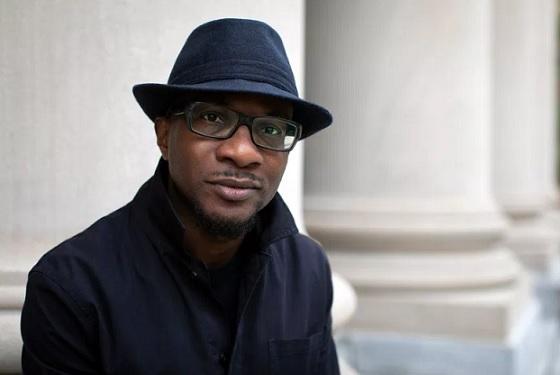
Teju Cole is a novelist, critic, and essayist, and is the first Gore Vidal Professor of the Practice. "Among other works, the boundary-crossing author is known for his debut novel “Open City” (2011), whose early admirers included Harvard professor and New Yorker critic James Wood."
Faculty Bookshelf
Known and strange things by teju cole (2016).

The Last Shot: City Streets, Basketball Dream by Darcy Frey (2004)

Open City by Teju Cole (2011)
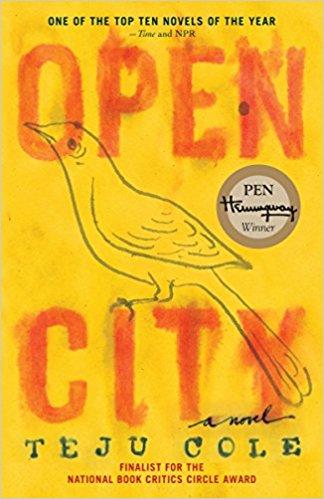
Cooked by Michael Pollan (2013)
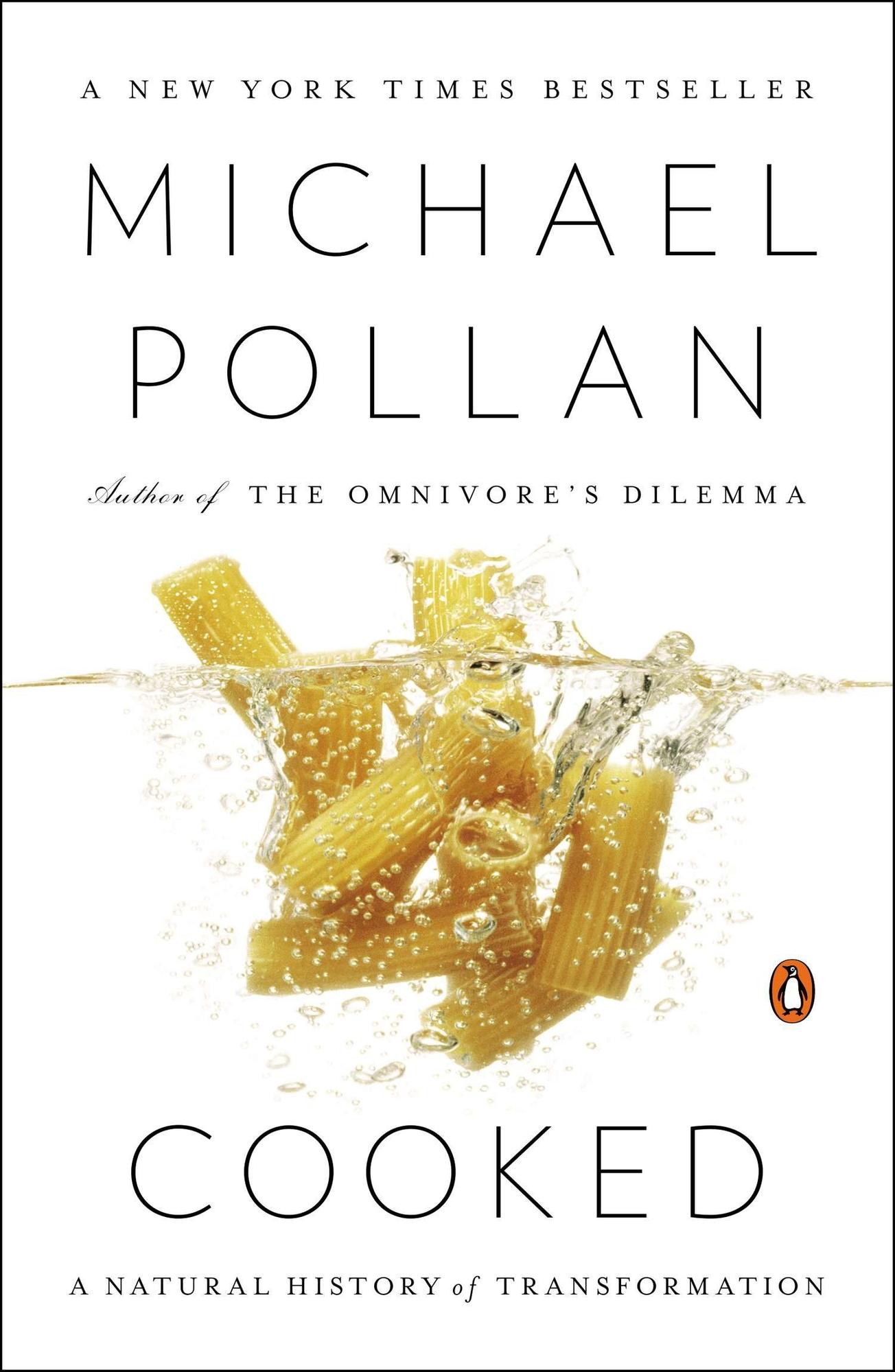
Creative Writing Workshops
- Spring 2024
English CACD. The Art of Criticism
Instructor: Maggie Doherty Wednesday, 12:00-2:45pm | Location: TBD Enrollment: Limited to 12 students Course Site
This course will consider critical writing about art–literary, visual, cinematic, musical, etc.—as an art in its own right. We will read and discuss criticism from a wide variety of publications, paying attention to the ways outlets and audience shape critical work. The majority of our readings will be from the last few years and will include pieces by Joan Acocella, Andrea Long Chu, Jason Farago, and Carina del Valle Schorske. Students will write several short writing assignments (500-1000 words), including a straight review, during the first half of the semester and share them with peers. During the second half of the semester, each student will write and workshop a longer piece of criticism about a work of art or an artist of their choosing. Students will be expected to read and provide detailed feedback on the work of their peers. Students will revise their longer pieces based on workshop feedback and submit them for the final assignment of the class. Apply via Submittable (deadline: 11:59pm EDT on Thursday, August 22) Supplemental Application Information: Please write a letter of introduction (1-2 pages) giving a sense of who you are, your writing experience, and your current goals for your writing. Please also describe your relationship to the art forms and/or genres you're interested in engaging in the course. You may also list any writers or publications whose criticism you enjoy reading. Please also include a 3-5-page writing sample of any kind of prose writing. This could be an academic paper or it could be creative fiction or nonfiction.
English CACW. Advanced Fiction Workshop
Instructor: Paul Yoon TBD | Location: TBD Enrollment: Limited to 12 students Advanced fiction workshop for students who have already taken a workshop at Harvard or elsewhere. The goal of the class is to continue your journey as a writer. You will be responsible for participating in discussions on the assigned texts, the workshop, engaging with the work of your colleagues, and revising your work. Supplemental Application Information: * Please note: previous creative writing workshop experience required. * Please submit ONLY a cover letter telling me your previous creative writing workshop experience, either at Harvard or elsewhere; then tell me something you are passionate about and something you want to be better at; and, lastly, tell me why of all classes you want to take this one this semester. Again, please no writing samples.
English CBBR. Intermediate Poetry: Workshop
Instructor: Josh Bell Monday, 12:00-2:45pm | Location: Barker 018 Enrollment: Limited to 12 students Course Site
Initially, students can expect to read, discuss, and imitate the strategies of a wide range of poets writing in English; to investigate and reproduce prescribed forms and poetic structures; and to engage in writing exercises meant to expand the conception of what a poem is and can be. As the course progresses, reading assignments will be tailored on an individual basis, and an increasing amount of time will be spent in discussion of student work. Apply via Submittable (deadline: 11:59pm EDT on Thursday, August 22)
Supplemental Application Information: Please submit a portfolio including a letter of interest, ten poems, and a list of classes (taken at Harvard or elsewhere) that seem to have bearing on your enterprise.
English CCEP. Ekphrastic Poetry: Workshop
Instructor: Tracy K. Smith Wednesday, 3:00-5:45 pm | Location: Lamont 401 Enrollment: Limited to 12 students Course Site What can a poem achieve when it contemplates or even emulates a work of art in another medium? In this workshop, we'll read and write poems that engage with other art forms--and we'll test out what a foray into another artistic practice allows us to carry back over into the formal methods and behaviors of poetry. With poems by Keats, Rilke, Auden, Hughes, and Brooks, as well as Kevin Young, Evie Shockley, Ama Codjoe and other contemporary voices. Apply via Submittable (deadline: 11:59pm EDT on Saturday, August 26) Supplemental Application Information: Please submit a writing sample of 5-10 poems and an application letter explaining your interest in this course.
English CCFC. Poetry Workshop: Form & Content
Instructor: Tracy K. Smith Tuesday, 12:00-2:45pm | Location: Sever 112 Enrollment: Limited to 12 students Course Site
In this workshop, we’ll look closely at the craft-based choices poets make, and track the effects they have upon what we as readers are made to think and feel. How can implementing similar strategies better prepare us to engage the questions making up our own poetic material? We’ll also talk about content. What can poetry reveal about the ways our interior selves are shaped by public realities like race, class, sexuality, injustice and more? Apply via Submittable (deadline: 11:59pm EDT on Saturday, August 26)
Supplemental Application Information: Please submit a writing sample of 5-10 poems and an application letter explaining your interest in this course.
English CCIJ. Intermediate Fiction Workshop
Instructor: Jesse McCarthy Thursday, 3:00-5:45 pm | Location: Barker 269 Enrollment: Limited to 12 students Course Site This is an intermediate course in the art of writing literary fiction. Previous experience with workshopping writing is encouraged but not required. The emphasis of the course will be learning how to read literature as a writer, with special attention given to the short story, novella, or short novel. We will read these works from the perspective of the writer as craftsperson and of the critic seeking in good faith to understand and describe a new aesthetic experience. We will be concerned foremost with how literary language works, with describing the effects of different kinds of sentences, different uses of genre, tone, and other rhetorical strategies. Together, we will explore our responses to examples of literature from around the world and from all periods, as well as to the writing you will produce and share with the class. As a member of a writing community, you should be prepared to respectfully read and respond to the work of others—both the work of your peers and that of the published writers that we will explore together. Apply via Submittable (deadline: 11:59pm EDT on Saturday, August 26) Supplemental Application Information: This course is by application only but there are no prerequisites for this course and previous experience in a writing workshop is not required . In your application please submit a short letter explaining why you are interested in this class. You might tell me a bit about your relationship to literature, your encounter with a specific author, book, or even a scene or character from a story or novel. Please also include a writing sample of 2-5 pages (5 pages max!) of narrative prose fiction.
English CCFS. Fiction Workshop
Instructor: Teju Cole Spring 2024: Tuesday, 6:00-8:45pm | Location: TBD Enrollment: Limited to 12 students Course Site Spring 2025: TBD This reading and writing intensive workshop is for students who want to learn to write literary fiction. The goal of the course would be for each student to produce two polished short stories. Authors on the syllabus will probably include James Joyce, Eudora Welty, Toni Morrison, Alice Munro, Jhumpa Lahiri, and Diane Williams.
Supplemental Application Information: Please submit a cover letter saying what you hope to get out of the workshop. In the cover letter, mention three works of fiction that matter to you and why. In addition, submit a 400–500 word sample of your fiction; the sample can be self-contained or a section of a longer work.
English CLPG. Art of Sportswriting
Instructor: Louisa Thomas Spring 2024: Tuesday, 9:00-11:45am | Location: TBD Enrollment: Limited to 12 students Course Site Spring 2025: TBD
In newsrooms, the sports section is sometimes referred to as the “toy department” -- frivolous and unserious, unlike the stuff of politics, business, and war. In this course, we will take the toys seriously. After all, for millions of people, sports and other so-called trivial pursuits (video games, chess, children’s games, and so on) are a source of endless fascination. For us, they will be a source of stories about human achievements and frustrations. These stories can involve economic, social, and political issues. They can draw upon history, statistics, psychology, and philosophy. They can be reported or ruminative, formally experimental or straightforward, richly descriptive or tense and spare. They can be fun. Over the course of the semester, students will read and discuss exemplary profiles, essays, articles, and blog posts, while also writing and discussing their own. While much (but not all) of the reading will come from the world of sports, no interest in or knowledge about sports is required; our focus will be on writing for a broad audience. Supplemental Application Information: To apply, please write a letter describing why you want to take the course and what you hope to get out of it. Include a few examples of websites or magazines you like to read, and tell me briefly about one pursuit -- football, chess, basketball, ballet, Othello, crosswords, soccer, whatever -- that interests you and why.
English CALR. Advanced Screenwriting: Workshop
Instructor: Musa Syeed Spring 2024: Wednesday, 12:00-2:45pm | Location: TBA Enrollment: Limited to 12 students Course Site Spring 2025: TBD
The feature-length script is an opportunity to tell a story on a larger scale, and, therefore, requires additional preparation. In this class, we will move from writing a pitch, to a synopsis, to a treatment/outline, to the first 10 pages, to the first act of a feature screenplay. We will analyze produced scripts and discuss various elements of craft, including research, writing layered dialogue, world-building, creating an engaging cast of characters. As an advanced class, we will also look at ways both mainstream and independent films attempt to subvert genre and structure. Students will end the semester with a first act (20-30 pages) of their feature, an outline, and strategy to complete the full script.
Supplemental Application Information: Please submit a 3-5 page writing sample. Screenplays are preferred, but fiction, creative non-fiction, poetry, and plays are acceptable as well. Also, please write a short note to introduce yourself. Include a couple films/filmmakers that have inspired you, your goals for the class, as well as any themes/subject matter/ideas you might be interested in exploring in your writing for film.
English CNFR. Creative Nonfiction: Workshop
Instructor: Darcy Frey Fall 2024: Wednesday, 3:00-5:45 pm | Location: TBD Enrollment: Limited to 12 students. Course Site Spring 2025: TBD
Whether it takes the form of literary journalism, essay, memoir, or environmental writing, creative nonfiction is a powerful genre that allows writers to break free from the constraints commonly associated with nonfiction prose and reach for the breadth of thought and feeling usually accomplished only in fiction: the narration of a vivid story, the probing of a complex character, the argument of an idea, or the evocation of a place. Students will work on several short assignments to hone their mastery of the craft, then write a longer piece that will be workshopped in class and revised at the end of the term. We will take instruction and inspiration from published authors such as Joan Didion, James Baldwin, Ariel Levy, Alexander Chee, and Virginia Woolf. This is a workshop-style class intended for undergraduate and graduate students at all levels of experience. No previous experience in English Department courses is required. Apply via Submittable (deadline: 11:59pm ET on Thursday, August 22)
Supplemental Application Information: Please write a substantive letter of introduction describing who you are as writer at the moment and where you hope to take your writing; what experience you may have had with creative/literary nonfiction; what excites you about nonfiction in particular; and what you consider to be your strengths and weaknesses as a writer. Additionally, please submit 3-5 pages of creative/literary nonfiction (essay, memoir, narrative journalism, etc, but NOT academic writing) or, if you have not yet written much nonfiction, an equal number of pages of narrative fiction.
English CLAR. Getting the Words Right: The Art of Revision
Instructor: Laura van den Berg TBD | Location: TBD Enrollment: Limited to 12 students A promising draft is of little use to us as writers if we have no idea what to do next, of how to begin again. This course aims to illuminate how revision can be every bit as creative and exhilarating as getting the first draft down—and how time spent re-imagining our early drafts is the ultimate show of faith in our work. We will explore the art of revision—of realizing the promise of that first draft—through reading, craft discussion, exercises, and workshop. Students can expect to leave the semester with two polished short stories (or 40-50 polished novel pages), a keener understanding of their own writing process, and a plan for where to take their work next. Texts will include How to Write an Autobiographical Novel by Alexander Chee, Refuse to by Done by Matt Bell, and Craft in the Real World by Matthew Salesses. It will be helpful to enter into the semester with some pre-existing material that you wish to revise (a short story, several chapters of a novel). Previous experience with workshopping writing is encouraged but not required. Supplemental Application Information: Please submit a brief letter—1-2 pages—that discusses your interest in the course and in writing more broadly. What are you interested in working on and learning more about, at this point in your practice? Please also submit a short—2-3 page—writing sample (the first 2 pages of a short story or novel, for example).
English CACF. Get Real: The Art of Community-Based Film
Instructor: Musa Syeed Wednesday, 12:00-2:45pm | Location: TBD Enrollment: Limited to 12 student Course Site
“I’ve often noticed that we are not able to look at what we have in front of us,” the Iranian director Abbas Kiarostami said, “unless it’s inside a frame.” For our communities confronting invisibility and erasure, there’s an urgent need for new frames. In this workshop, we’ll explore a community-engaged approach to documentary and fiction filmmaking, as we seek to see our world more deeply. We’ll begin with screenings, craft exercises, and discussions around authorship and social impact. Then we each will write, develop, and shoot a short film over the rest of the semester, building off of intentional community engagement. Students will end the class with written and recorded materials for a rough cut. Basic equipment and technical training will be provided.
Apply via Submittable (deadline: 11:59pm EDT on Thursday, August 22)
Supplemental Application Information: Please submit a brief letter explaining why you're interested to take this class. Please also discuss what participants/communities you might be interested in engaging with for your filmmaking projects. For your writing sample, please submit 3-5 pages of your creative work from any genre (screenwriting, poetry, fiction, non-fiction, etc.)
English CAFR. Advanced Fiction Workshop: Writing this Present Life
Instructor: Claire Messud Thursday, 3:00-5:45 pm | Location: TBD Enrollment: Limited to 12 students Course Site Intended for students with prior fiction-writing and workshop experience, this course will concentrate on structure, execution and revision. Exploring various strands of contemporary and recent literary fiction – writers such as Karl Ove Knausgaard, Rachel Cusk, Chimamanda Adichie, Douglas Stuart, Ocean Vuong, etc – we will consider how fiction works in our present moment, with emphasis on a craft perspective. Each student will present to the class a published fiction that has influenced them. The course is primarily focused on the discussion of original student work, with the aim of improving both writerly skills and critical analysis. Revision is an important component of this class: students will workshop two stories and a revision of one of these. Apply via Submittable (deadline: 11:59pm ET on Thursday, August 22)
Supplemental Application Information: Please submit 3-5 pages of prose fiction, along with a substantive letter of introduction. I’d like to know why you’re interested in the course; what experience you’ve had writing, both in previous workshops and independently; what your literary goals and ambitions are. Please tell me about some of your favorite narratives – fiction, non-fiction, film, etc: why they move you, and what you learn from them.
English CAKV. Fiction Workshop: Writing from the First-Person Point of View
Instructor: Andrew Krivak Tuesday, 9:00-11:45 1m | Location: TBD Enrollment: Limited to 12 students Course Site This course is a workshop intended for students who are interested in writing longer form narratives from the first-person point of view. The “I” at the center of any novel poses a perspective that is all at once imaginatively powerful and narratively problematic, uniquely insightful and necessarily unreliable. We will read from roughly twelve novels written in the first-person, from Marilynne Robinson and W.G. Sebald, to Valeria Luiselli and Teju Cole, and ask questions (among others) of why this form, why this style? And, as a result, what is lost and what is realized in the telling? Primarily, however, students will write. Our goal will be to have a student’s work read and discussed twice in class during the semester. I am hoping to see at least 35-40 pages of a project —at any level of completion—at the end of term. Apply via Submittable (deadline: 11:59pm EDT on Thursday, August 22) Supplemental Application Information: Please write a substantive letter telling me why you’re interested in taking this class, what writers (classical and contemporary) you admire and why, and if there’s a book you have read more than once, a movie you have seen more than once, a piece of music you listen to over and over, not because you have to but because you want to. Students of creative nonfiction are also welcome to apply.
English CCSS. Fiction Workshop: The Art of the Short Story
Instructor: Laura van den Berg Tuesday, 12:00-2:45 pm | Location: TBD Enrollment: Limited to 12 students Course Site This course will serve as an introduction to the fundamentals of writing fiction, with an emphasis on the contemporary short story. How can we set about creating “big” worlds in compact spaces? What unique doors can the form of the short story open? The initial weeks will focus on exploratory exercises and the study of published short stories and craft essays. Later, student work will become the primary text as the focus shifts to workshop discussion. Authors on the syllabus will likely include Ted Chiang, Lauren Groff, Carmen Maria Machado, and Octavia Butler. This workshop welcomes writers of all levels of experience. Apply via Submittable (deadline: 11:59pm EDT on Thursday, August 22) Supplemental Application Information: Please submit a letter of introduction. I’d like to know a little about why you are drawn to studying fiction; what you hope to get out of the workshop and what you hope to contribute; and one thing you are passionate about outside writing / school. Please also include a very brief writing sample (2-3 pages). The sample can be in any genre (it does not have to be from a work of fiction).
Write an Honors Creative Thesis
Students may apply to write a senior thesis or senior project in creative writing, although only English concentrators can be considered. Students submit applications in early March of their junior year, including first-term juniors who are out of phase. The creative writing faculty considers the proposal, along with the student's overall performance in creative writing and other English courses, and notifies students about its decision in early mid-late March. Those applications are due, this coming year, on TBA .
Students applying for a creative writing thesis or project must have completed at least one course in creative writing at Harvard before they apply. No student is guaranteed acceptance. It is strongly suggested that students acquaint themselves with the requirements and guidelines well before the thesis application is due. The creative writing director must approve any exceptions to the requirements, which must be made in writing by Monday, February 7, 2022. Since the creative writing thesis and project are part of the English honors program, acceptance to write a creative thesis is conditional upon the student continuing to maintain a 3.40 concentration GPA. If a student’s concentration GPA drops below 3.40 after the spring of the junior year, the student may not be permitted to continue in the honors program.
Joint concentrators may apply to write creative theses, but we suggest students discuss the feasibility of the project well before applications are due. Not all departments are open to joint creative theses.
Students who have questions about the creative writing thesis should contact the program’s Director, Sam Marks .
Events Gallery
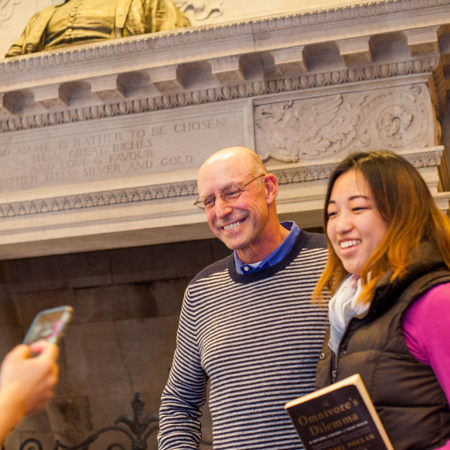
- Guide for Concentrators
- Declare English
- Secondary Field
- Alumni Features and Careers
- Prizes and Fellowships
- Research, Resources, and Forms
✨ New classes added! $100 off yearlongs and early bird discounts for a limited time! Member registration open now; general opens Friday 🌟
Creative writing classes for everyone.
Tell your story..
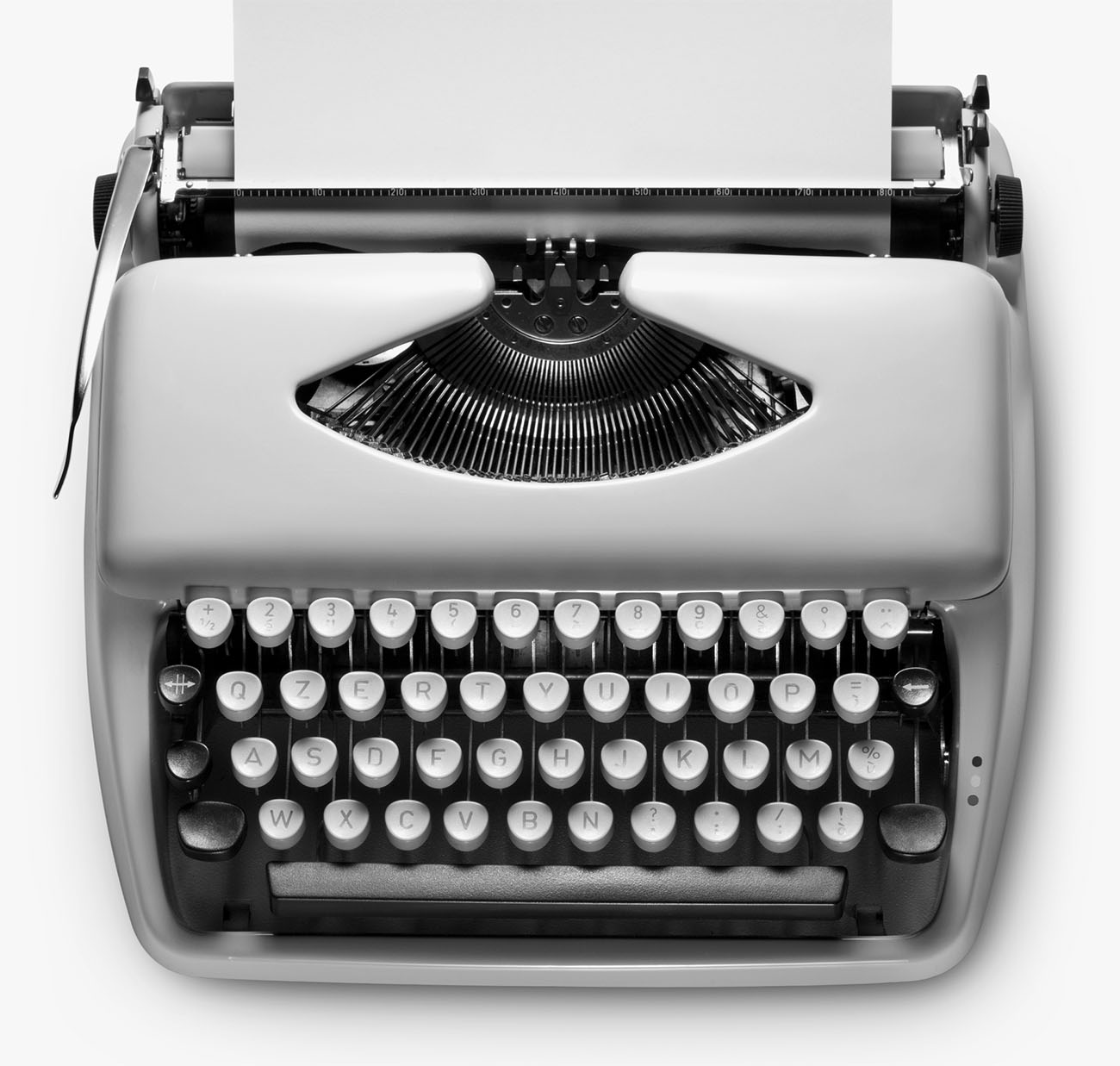
Creative Writing Classes and More
Explore the world of creative writing at Hugo House, Seattle’s non-profit literary arts center and home for writers. Whether you prefer the dynamic atmosphere of our in-person classes in Seattle or the flexibility of our online courses, Hugo House offers a diverse array of options to grow your writing skills. You’ll find sliding scale classes, creative writing workshops, writing craft classes, drop-in writing circles, asynchronous online classes, open mics, writing coaches, accountability help, and more. These programs are designed to support new and seasoned writers at all stages of the writing journey.
Meet other writers, finish your novel, complete your screenplay, polish your poetry, and rediscover your love for writing.
Sign up for a class and start writing the story only you can tell.

Registration for Fall 2024 creative writing classes opens on August 13th!
Subscribe to our newsletter for house news, community happenings, and writerly content.
View our Digital Class Catalog
Learn with us.
Whether you’re struggling to write your first poem or have a few novels under your belt, Hugo House offers classes, workshops, and other programs to help you achieve your writing goals. Our classes are taught by published writers who are also stellar teachers. Our students come from a variety of backgrounds and life experiences. What they all have in common: a love of words.
The Lightning & Its Source
Instructor: Brian Turner. Learn to weave science and the natural world into your poems and lyric essays. From the cosmic to the microscopic, from the physical to the metaphysical, we'll marry research and lyricism in this generative workshop.
Upcoming Events
Works in progress (virtual), write with hugo house with alma garcía, write with hugo house with jeanine walker, works in progress (in-person), tara campbell reading & workshop – city of dancing gargoyles.

News & Insights
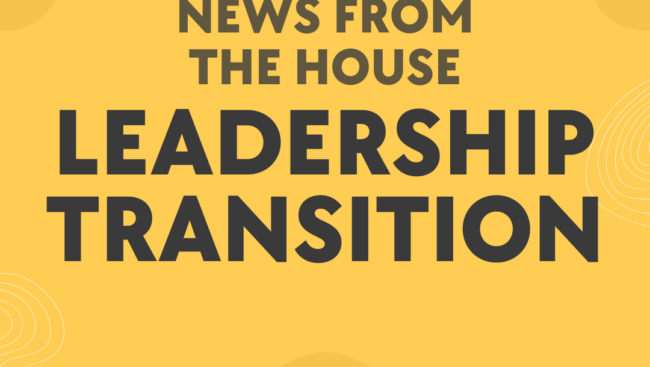
Leadership Transition at Hugo House
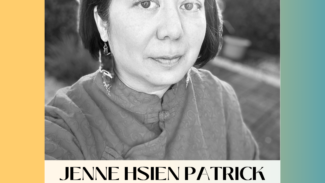
Jenne Hsien Patrick, 2023-24 Hugo Fellow Mid-Year Check In
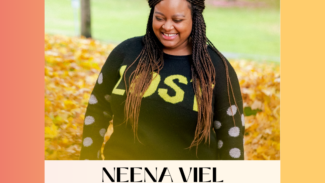
Neena Viel, 2023-24 Hugo Fellow Mid-Year Check In
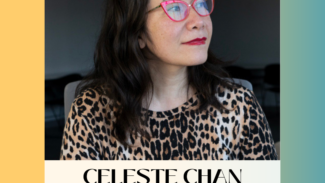
Celeste Chan, 2023-24 Hugo Fellow Mid-Year Check In
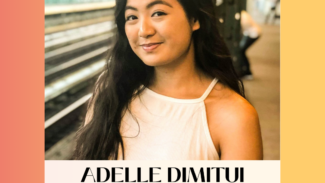
Adelle Dimitui, 2023-24 Hugo Fellow Mid-Year Check In
Featured free resource, open mic events.
Works in Progress is Hugo House’s semi-monthly writing open mic series inclusive of diverse formats. Read your work—poetry, fiction, essays, memoirs, plays, music, comedy, and more—and connect with your literary community.
Newsletter signup
House news and writerly updates
Physical Location
Mailing location.
© 2022 Hugo House
- Privacy Policy
- Terms of Use

Fall Quarter
- Student Login Username Password Remember my password --> Submit Forgotten Username/Password New Student Account Setup Existing Student Account Setup ? Close This form is for current or former Stanford Continuing Studies students who do NOT already have a student login. Click here if you already have a student login account and have forgotten your username or password.
- Join Email List Sign up
CREATIVE WRITING AT STANFORD
Whether you’re just beginning to write or putting the finishing touches on your first novel, our on-campus and online writing courses offer expert instruction, individual attention, and supportive feedback at all levels, in all genres of creative writing. Most of the instructors in our program have established careers as novelists, journalists, playwrights, and screenwriters. Many have served as fellows in Stanford’s prestigious Stegner Creative Writing Program. Choose from writing courses in creative nonfiction, fiction, poetry, memoir, magazine writing, travel writing, the short story and more. Stanford Continuing Studies offers writing workshops and online and on-campus writing courses, so you can choose the format that best fits your schedule.
FEATURED CREATIVE WRITING COURSES
Write a Novel in 30 Days: No Critics, No Fear
An Author's Guide to Publishing: Get Your Work into the World
Poetry Workshop: Locating the Language of Your Life
Creative Nonfiction Workshop: Crafting a Narrative Voice

PROGRAM HIGHLIGHTS
- Open to all adults.
- No admission requirements.
- Engaging courses.
- New courses added every quarter.
- Experience the Stanford campus in person or online.
HOW TO REGISTER

The fastest and easiest way to register for courses is online. You may browse through the website, add courses to your cart, and then complete the online registration process . If you already know which courses you want to register for, you may go to View Cart and begin registration.
- College of Arts & Sciences
- Graduate Division
- College of Liberal and Professional Studies

Courses for Spring 2023
To join a course, click here to register via path@penn., for details on our spring 2023 bassini writing apprenticeships, click here., english 3011.301, intro to creative writing: poetry and memoir, laynie browne , t 1:45pm-4:45pm , add to cart.
This is a course for students who are interested in exploring a variety of approaches to creative writing, including poetry, memoir, and hybrid texts. Readings will include poetry and memoir and will represent various approaches to writing from life, including works by: Hoa Nguyen, Renee Gladman, and Lyn Hejinian, among others. Students will be encouraged to discover new territory, to cultivate a sense of play, to collaborate, and to unhinge conventional assumptions regarding what is possible in writing.
English 3014.301, Intro to Creative Writing: Fiction and Essay, Sebastian Castillo , M 5:15pm-8:15pm
This workshop-style class is an introduction to the pleasures of writing prose, both fiction and nonfiction. Students will read essays and short stories from a wide variety of genres, forms, and traditions, and respond with their own essays and short stories. They will also learn how to generate brand-new material, discuss fiction and nonfiction texts in a critical way, and access the fount of creativity within themselves. We will talk about the craft of writing, and will perform periodic in-class exercises. No prior creative writing experience is necessary, but students must be willing to participate, revise their work, take risks, and be generous with themselves and others.
English 3024.301, Intro to Creative Writing: Imitations and Writing in Form, Ahmad Almallah , MW 12pm-1:30pm
What is a cento? An essay? A short story? How do you go about writing one? How can writing a sonnet or a piece of dialogue both be an exercise in bringing the poetics of language to the forefront? How can the imitation of literary forms be a way into improving your writing? How does writing “a terrible sonnet” sound to you? This course works around the idea of imitation as a way of constructing generative practices of writing by setting limitations. We’ll begin by looking at examples of poetic forms and their imitations in pre-modernist and modernist works and their use of form. Eventually we’ll work on writing our own imitation and how to use them or break them into any style, including prose.
English 3026.301, Intro to Creative Writing: Writing Real Science, Weike Wang , M 10:15am-1:15pm
In this course, students will read and write fiction and nonfiction with an eye for science research. Most if not all fiction and nonfiction requires some kind of research. Our readings will explore how writers can incorporate knowledge and facts into their prose without compromising craft (the how). While research is ubiquitous to writers, science is rarely found in creative writing without being conflated with science fiction—which this course will touch on, but will not be our main focus. Instead, this course will explore ways to bring real science into our pieces and make them fun, exciting and fresh. The first half of the semester will be dedicated to reading and mini workshops of a short piece (2-3 pages). The second half of the semester, each student will work towards a longer piece (7-10 pages), to be workshopped. Students do not need a science background for the course, though an interest in science, creative writing and craft will prove helpful.
English 3028.301, Introduction to Creative Writing: Breath and Movement, Amber Rose Johnson , R 3:30-6:30pm (cancelled for Spring 2023)
This workshop style class will combine creative writing exercises and guided movement practices that draw our critical attention to breath and breathing, at a time when both have become highly politicized. In the midst of the COVID 19 pandemic, widespread environmental racism, and the echo of the terrible refrain “I can’t breathe,” we will use these class sessions to engage with poetry, prose, and performance that will help us pay more attention to our bodies, our breath, and our sense of lived-in liberation. Throughout the semester, we will engage with visiting artists and practitioners who will guide us through movement practices including breath-focused meditation and intentional walking, and students will produce their own creative writing or movement scores. Our syllabus will prioritize the experiences and perspective of Black, Latinx, and Indigenous peoples, and people of color more broadly.
English 3029.301, Intro to Creative Writing: Through the 1619 Project, Taije Silverman , TR 12pm-1:30pm
This introductory creative writing workshop offers an opportunity to hone creative writing skills through the revelatory framework of Nikole Hannah-Jones’s 1619 Project, with its entrance into our nation’s history through the year kidnapped African people arrived in what would become the United States. Studying the particular ways language functions (and the particular ways it fails) to express our own origin stories, students will read work by brilliant contemporary poets and essayists—including Hanif Abdurraqib, Claudia Rankine, Felicia Zamora, Danez Smith, Cathy Park Hong, Ari Banias, Tressie McMillan Cottom, and Claudia Rankine—and listen to the 1619 Project podcast, in order to investigate and describe our experiences of home and identity. In addition to in-class exercises, students will write, workshop, and revise poems and short prose throughout the semester. Through our study of this country’s foundations and present tense, we will explore narrative registers, hone craft, and engage the fraught marriage between personal and collective histories.
English 3100.301, Poetry Workshop, Ron Silliman , W 1:45pm-4:45pm
Poetry is where the personal is always political, especially when it’s not. Often described as “the art of language,” poetry is the oldest literary genre, one that can be practiced in thousands of different ways; it is both the most traditional of art forms and the one most given to innovation. This class will both examine the constituent elements that come together to make a poem as well as sample the many types of expression and social investigation poetry makes possible: sonnets, performance poetry, documentary, visual poetry, conceptual writing, found language, prose poems, haiku, collaboration. Students will write poems weekly, build a personal anthology of poems important to them, maintain a journal, etc. There will be a lot of reading. Prior experience with poetry is not a requirement; nor is a major in English.
English 3111.301, Experimental Writing, Kenneth Goldsmith , R 1:45pm-4:45pm
It's clear that long-cherished notions of creativity are under attack, eroded by file-sharing, media culture, widespread sampling, and digital replication. How does writing respond to this new environment? This workshop will rise to that challenge by employing strategies of appropriation, replication, plagiarism, piracy, sampling, and plundering as compositional methods. Along the way, we'll trace the rich history of forgery, frauds, hoaxes, avatars, and impersonations spanning the arts, with a particular emphasis on how they employ language. We'll see how the modernist notions of chance, procedure, repetition, and the aesthetics of boredom dovetail with popular culture to usurp conventional notions of time, place, and identity, all as expressed linguistically.
English 3120.401, The Translation of Poetry/The Poetry of Translation, Taije Silverman , TR 10:15am-11:45am
“Human words have no main switch. But all those little kidnaps in the dark.”—Anne Carson
In this class we will study multiple translations of famous poems by major world poets such as Shu Ting, Gabriela Mistral, Mahmoud Darwish, Anna Akhmatova, Aimé Césaire, and Paul Celan. The curriculum will be tailored to the backgrounds of students who enroll, and all are welcome.
Alternating between creative writing workshops (to critique and revise our own translations of the poems) and critical discussions, the course will also include presentations on the political and geographical frames that shape each text. For example, our translations of Aimé Césaire will be informed by his scholarship on colonialism. Translating Osip Mandelstam’s “Stalin Epigram” will bring us to Soviet Russia’s forced famine in Ukraine. Discussions of Israel and Palestine will surround our translations of Israeli poet Dahlia Ravikovitch, or of Palestinian poet Mahmoud Darwish. Informal and dynamic history classes will form the undercurrent of our formal poetry class.
Through poems, essays on translation theory, and our own ongoing experiments, this course will celebrate the ways in which great poetry—written in Chinese, Arabic, Spanish, Hebrew, French, Hindi, or Russian—underscores the fact that language itself is a translation. In addition to poetic translations, assignments will include an oral presentation, an exchange of letters with a classmate, and a short creative essay. This course is cross-listed with COML 3120.
More info at Critical Writing.
English 3201.301, Flash Fiction, Weike Wang , M 1:45pm-4:45pm
This writing workshop is devoted to the shortest forms of fiction. Short-form fiction is any story under 1,000 words. We will consider the art of condensation, brevity, sudden stories, and microfiction. We’ll read a large array of arresting work written in both English and in English translation. Assigned readings will include the writing of Lydia Davis, Rivka Galchen, Amy Hempel, Vi Khi Nao, Garielle Lutz, Can Xue, Russell Edson, Daniil Kharms, and several others. The majority of our workshops will focus on creating our own very short stories through a variety of styles and approaches. Students will be responsible for writing four pieces throughout the semester to be workshopped by their peers, as well as weekly responses.
English 3208.301, Advanced Fiction Writing: Short Fiction, Max Apple , T 1:45pm-4:45pm
The class will be conducted as a seminar. Every student will write four stories during the semester; each story will be discussed by the group. The instructor will, from time to time, suggest works of fiction that he hopes will be illustrative and inspirational but there will be no required books. Attendance and active class participation are essential. Permission to enroll is required. Please submit a brief writing sample to [email protected].
English 3214.301, Points of View: Writing Polyvocal Fiction, Piyali Bhattacharya , T 5:15pm-8:15pm
What makes a piece of fiction “voicey”? What does it mean for us as writers to be inside our character’s voice? How do we switch into the voice of a different character in the same piece of fiction? How much page time does a character need in a story with multiple voices? Do characters experience the same event from different points of view, or do they examine different events in kaleidoscopic perspectives? This polyvocal fiction workshop will interrogate how we write one story from the point of view of two or more characters. Our characters might all speak in the first person, or one may be in first while another is in third. We might have two narrators, each speaking for the other. The list of possibilities is long. But most importantly, we will look at a story from inside the mind of more than one person in it. We will then decide how that story might be told by each of those people. To set ourselves some examples, we will read for class works by Jacqueline Woodson, Elizabeth Acevedo, Jennifer Egan, Tommy Orange, and Lisa Ko, and workshop our own original writing.
English 3215.301, The Art of Fiction, Karen Rile , R 3:30pm-6:30pm
Is it art, or is it craft? Truth is, it’s both. In this generative, interactive workshop we’ll investigate literary fiction technique through a series of directed prompts designed to unfetter your imagination and bring your fiction writing to the next level. Through weekly creative assignments, you will produce a portfolio of work ranging from quirky experiments to fully realized stories. Course readings from a diverse selection of contemporary fiction will illustrate varied approaches to the techniques we’ll explore. Every week you will read, write, react, and workshop in a supportive, inclusive environment. This class is appropriate for fiction writers of every level. Come prepared to take creative risks as you deepen your art and advance your craft.
English 3256.301, Advanced Writing for Young Adults, Nova Ren Suma , W 1:45pm-4:45pm
This is an advanced workshop-focused course for students who would like to spend the semester writing a YA novel. Through constructive critique and a workshop style that gives each writer agency and a voice in discussion of their own work, we will engage with ongoing chapters of students’ novels throughout the semester. Students will be workshopped more than once, and though the aim won’t be completing a whole manuscript, significant and exciting progress will be made. Required reading will consist mainly of classmates’ manuscripts, and the only assignments will be maintaining a regular writing practice to make progress on your own novel, brief weekly written critiques for your peers, and a final project consisting of revised opening pages and a future query letter. A guest author visit may also be arranged. Active class participation and regular attendance is essential to make this class work. All YA genres are welcome and celebrated, from realism to speculative fiction, and those writing YA-crossover (sometimes called New Adult) are also welcome in this class. Permission to enroll is required. Please send an email describing your interest in this class and your experience writing YA fiction to Nova Ren Suma at [email protected].
English 3303.301, Narrative Nonfiction: The Art of Experience, Jay Kirk , W 5:15pm-8:15pm
Every work of nonfiction is a writer’s attempt to reconstruct experience. But experience can be an elusive thing to capture: a strange hybrid of the highly subjective and the more tangible zone of perceptible fact. How do we strike a balance in narrative nonfiction? For one, we employ the same devices that we already use to navigate our way through the world—that of our senses. The more vivid the details of sight, touch, smell, taste, and sound, the more immersed the reader will become in the author’s re-created world of words. But what of the more abstract, less concrete sixth sense of thought? After all, it is our mind that perceives and finds the subjective meaning in experience. In this narrative nonfiction writing workshop, we will look at craft, literary technique, the mechanics of building vivid and powerful scenes, discuss the role of story-logic, and the importance of hard fact-checking. Yet, the student is also urged to pay close attention to their own internal narrator, and to be mindful of the intuitive (and unconscious) powers at play in their writing. Each week we will review classics in the genre, do in-class writing exercises, go on periodic “experiential” assignments, and explore how the art of playing around with the raw material of everyday life (i.e., “reality”) can make for great and unexpected stories.
English 3352.301, Creative Nonfiction: Look In; Look Out, Lise Funderburg , M 1:45pm-4:45pm
In this creative nonfiction workshop you will enlist essay and memoir genres to explore connections between the personal and the universal. Your direct experiences matter … but why? Here’s a chance to write your way to understanding, clarity and resonance. We’ll experiment with narrative stance and form (such as lyric, hermit crab, braided, and epistolary), and you’ll write. A lot. Three longer essays and a handful of shorter ones that will be generated by guided freewrites. Most of these will be revised at least once. Aside from general guidance, the subject matter of your work is open and up to you. Take advantage of the city that surrounds you. The questions and answers you’ve stumbled across. The way life has surprised you, perplexed you, held you captive, set you free, made you LOL.
Creative nonfiction is an art form that calls on both the literary techniques of fiction and the reporting strategies of journalism. In addition to writing, we’ll use class exercises and discussions of readings to address technical issues such as narrative/thematic tension, transition, character development, dialogue, point of view, characterization, imagery, structure, tone, style, and how to research your life. Through careful attention to your work as well as that of your peers, expect to become a stronger writer, a better reader, and an enthusiastic reviser.
English 3408.301, Long-Form Journalism, Dick Polman , M 1:45pm-4:45pm
We’ll be reading and workshopping some of our most adventurous, pioneering nonfiction reporter/writers. At the same time, we’ll also shepherding semester-long projects that are due during exam period. The so-called “New Journalists” have thrived ever since the iconoclastic 1960s—the era when the craft was first developed and practiced. The term itself is very imprecise—the “New Journalists” were fiercely independent of each other, employing a wide range of reportorial and stylistic techniques not previously seen in American nonfiction—and their styles differ. But they’ve shared one fundamental trait. In the words of Marc Weingarten, who authored a book about the original New Journalists ( The Gang that Wouldn’t Write Straight ), they’ve all aspired to practice “journalism that reads like fiction” yet “rings with the truth of reported fact.”
We’ll closely parse some of their work, not because they are products of long-distant eras, but precisely because their novelistic techniques—narrative storytelling, dramatic arcs and scenes, structural cliffhangers, shifting points of view, author’s voice, dialogue as action—are routinely employed by the best long-form journalists today. Indeed, many contemporary journalists take these techniques for granted, perhaps unaware of their origins.
But this is not just a reading course. The ultimate goal is for each student to take the best of these techniques and use them in the reporting and writing of a long-form nonfiction piece that is due at the semester’s end. Each student will nurture one project from January to early May. And during the semester, we will schedule the time to workshop these works in progress—with class feedback and feedback from the instructor, functioning as an editor would.
English 3410.301, Writing from Photographs, Paul Hendrickson , M 1:45pm-4:45pm
A creative writing course built entirely around the use of photographs, and the crafting of compelling nonfiction narratives from them. The essential concept will be to employ photographs as storytelling vehicles. So we will be using curling, drugstore-printed Kodak shots from our own family albums. We will be using searing and famous images from history books. We will be taking things from yesterday’s newspaper. We will even be using pictures that were just made by the workshop participants outside the campus gates with a disposable camera from CVS or with their own sophisticated digital Nikon. In all of this, there will be one overriding aim: to achieve memorable, full-bodied stories. To locate the strange, evocative, storytelling universes that are sealed inside the four rectangular walls of a photograph. They are always there, if you know how to look. It’s about the quality of your noticing, the intensity of your seeing.
Writers as diverse as the poet Mark Strand and the novelist Don DeLillo and the memoirist Wright Morris have long recognized the power of a photograph to launch a story. In this course we are going to employ memory and imagination to launch our stories, but most of all we are going to make use of fact: everything that can be found out, gleaned, uncovered, dug up, stumbled upon. Because first and last, this is nonfiction, this is the art of reported fact. So a lot of this class will go forward using the tools and techniques of journalism: good, old-fashioned reporting and research, legwork. And turning that reporting into writing gold. A photograph represents time stopped in a box. It is a kind of freeze-frame of eternity. It is stopped motion, in which the clock has seemed to hold its breath. Often, the stories inside photographs turn out to be at surprising odds with what we otherwise thought, felt, imagined.
Say, for instance, that you hunger to enter the photographic heart of this youthful, handsome, dark-haired man—who is your father—as he leans now against the gleaming bumper of a 1965 red-leather, bucket-seat Mustang. It was three decades before you were born. The moment is long buried and forgotten in your collective family’s past—and yet in another way, it is right here before you, on this photosensitive surface. Whether the figure in the photograph is alive or deceased, you are now going to try with all of your writing and reporting might to “walk back in.” Almost literally. You are going to achieve a story about this moment, with a beginning, middle, and end.
“Every great photograph has a secret,” a noted critic once said. An essayist for Time magazine once wrote: “All great photographs have lives of their own. But sometimes they can be false as dreams.”
English 3411.301, The Arts and Popular Culture: The Beatles, Anthony DeCurtis , R 1:45pm-4:45pm
Magical Mystery Tour: Discovering Inspiration and Your Own Creativity in the Music of the Beatles
This course will focus on the music and lives of the Beatles as sources of creative inspiration. The course will, in part, take its shape based on the interests of the students who enroll in it. While Beatles obsessives — you know who you are — are, of course, welcome, if you are new to their music and simply curious about how this iconic band might inspire your own creative activity, you are more than welcome as well. Your adventurousness and willingness to take a deep dive into their work is all that is required.
We will listen to and discuss Beatles songs, watch documentaries about the group, explore their influence across the arts and culture, and meet critics and artists who have engaged them and their work in meaningful ways. To that degree, the course will be more impressionistic than strictly schematic — that is, we will follow various threads in the Beatles' work as they emerge and our fascination guides us. The goal is for us to achieve an understanding of the band and its individual members that is as visceral as it is intellectual.
The class will do some analytic writing, and each student will make at least one presentation. However, students who are so inclined will be encouraged to pursue their own creative work — which is to say that, in consultation with the instructor, short stories, songs, poems, plays, visual art, or videos inspired by the Beatles will be acceptable projects to complete the course's requirements. You will be allowed a great deal of freedom in charting your own independent course, in other words, as appropriate to our subject and the gifts their work has given to us all. As Sgt. Pepper assured us, “A pleasant time is guaranteed for all.”
English 3412.301, Advanced Writing Projects in the Arts and Popular Culture, Anthony DeCurtis , R 10:15am-12:15pm
This advanced course in writing about the arts and popular culture (interpreted broadly) is limited in enrollment and focuses on a semester-long project that each student defines in consultation with the instructor. The course will be run something like a group independent study, in which students pursue their specific, personal projects and share their work on an ongoing basis with the class as a whole. Ideally, students will informally serve as each other’s editors, sharing suggestions, sources, approaches and encouragement. Occasional meetings of the full group will concentrate on issues relevant to all aspects of arts-and-culture writing, while meetings with individual students will focus and help realize the individual projects that will constitute the course’s main work. Most typically, the semester-long project will be a lengthy feature (6,000+ words) of the sort that regularly appears in The New Yorker , The New York Times Magazine or Rolling Stone , among other publications. Other approaches to the project, however, will certainly be considered. Readings for the course will be geared specifically to the interests of the students who have been selected, and will be drawn from relevant work that is appearing at that time in journalistic publications. Ideally, applicants will have already taken English 3411 with the instructor, but that is not a firm prerequisite and other students should absolutely feel free to contact the instructor for more information. Permission to enroll is required. Please send an email describing your interest to [email protected].
English 3417.301, Political Journalism, Dick Polman , W 1:45pm-4:45pm
How do journalists who cover national politics meet the challenge of writing factually and truthfully—when there is no longer a general public consensus about what constitutes fact and truth? Journalists today are tasked with the traditional job of holding people in power accountable (starting with the Biden administration)—while also writing responsibly about the Trump-inspired movement that imperils democracy itself. These challenges are being exacerbated by Trump-allied candidates’ growing unwillingness to engage with mainstream media outlets. Students in this course will write frequent timely pieces—opinion columns and news analyses—while confronting some broader issues: Is traditionally “objective” journalism up to the challenge? Is it feasible to provide “balanced,” “both sides” coverage when one of the major parties is led by a former president who seeks to undermine traditional democratic values? Is it possible to write critically of lies and misinformation without being labeled “partisan”?
English 3422.301, Advanced Writing Projects in Long-Form Nonfiction, Paul Hendrickson , S
An advanced course in long-form nonfiction journalistic writing for a select group of experienced and self-starting student writers. (Ideally, each accepted member will have already taken one or two nonfiction seminars within the creative writing program.) The goal will be to tailor a reporting and writing project to your interest, one you may have long wished to take up but never had the opportunity. It could be a project in the arts. It could be a profile of a person or place. It might be documentary in nature, which is to say an extremely close-up observation of your subject. (An example: think of a hospital chaplain at Penn, going on his dreary, redemptive, daily rounds, to visit the sick and anoint the dying. What if you were there, for most of the term, as unobtrusively as possible, at his black-clad elbow?) The group will meet at to-be-determined intervals. In between, the enrollees will be pairing off and in effect serving as each other’s editor and coach and fellow (sister) struggler. When we do assemble as a group, we will be reading to each other as well as discussing the works of some long-form heroes—Didion, Talese, Richard Ben Cramer, one or two others you may not have heard of. In essence, this is a kind of master course, limited in enrollment, and devoted to your piece of writing, to be handed in on the final day. It will be in the range of 25 to 30 pages, something above 8,000 words. The course presumes a lot of individual initiative and self-reliance. Permission to enroll is required. If you’re interested, please email [email protected] and suggest your qualifications.
English 3423.3 01, Planet on the Brink: Climate and Environment Journalism, Peter Tarr , T 1:45pm-4:45pm
This course is for students who care about “the fate of the earth,” and who want to try their hand at formulating relevant publication-quality fact and opinion pieces. Those students include: STEM students who are writing-curious; journalism students interested in sci-tech writing; and prose writers who care about using facts to tell urgently important stories. We'll tackle urgent topics that regularly command today's headlines, such as: global warming (should we risk geoengineering the climate?); “the 6th Extinction" (should we try to save every endangered species?); and preventing the next pandemic (should researchers be allowed to augment non-virulent viruses to learn how to defeat them should they mutate?). Inaction on issues that threaten life in the world your generation is now inheriting may be due, partly, to the difficulty of formulating coherent opinions about corrective courses of action. One way to avoid the “deer-in-headlights” non-response is to learn enough facts to formulate compelling, persuasive opinions. This course gives you the chance to do precisely that—while improving your writing skills. You will also work on a semester-long reporting project of profiling a scientist, doctor, or researcher who is involved in sci/tech/fate-of-the-earth issues.
English 3426.301, The Art of Editing, Julia Bloch , R 10:15am-1:15pm
This course takes a critical and practical approach to the art of editing. Is the editor simply a “failed writer,” as T. S. Eliot claimed, or is good editing the key to a writer’s clarity and integrity? In addition to exploring theories and histories of the red pen, we will consider a few case studies of editorial interventions, such as Ezra Pound’s excisions and revisions of Eliot’s The Waste Land , Marianne Moore’s five-decade quest to revise a single poem, and the editor who was discovered to have invented Raymond Carver’s distinctive narrative style. We will immerse ourselves in the technical aspects of editing, covering such topics as the difference between developmental and line editing, the merits of MLA and Chicago style, proofreading in hard copy and digital environments, and when to wield an em dash. Students will gain practical copyediting experience, learn about a range of different levels of editorial interventions, and investigate the politics of language usage and standards, reading from literary texts such as Gloria Anzaldúa’s “How to Tame a Wild Tongue,” Harryette Mullen’s Sleeping with the Dictionary , and Dohra Ahmad’s Rotten English anthology to ask crucial questions about what “standard English” really means. This course counts toward the Journalistic Writing Minor.
English 3502.301, Writing and Borders, Ahmad Almallah , MW 10:15am-11:45am
This workshop is about experiments in writing that exceeds the limits of form: when the drive to put down experience in poems spills out into prose, or when the borders provided for the experience seem to hold for the moment, only to collapse the moment after. This particular writing drive seeks to occupy space, not in the real sense, but in the abstract—where the insider goes out, and the outsider hides in. This ever-acting dichotomy in writing poems is often brought out in times of personal crisis, but most distinctly in times of conflict and war (and where the lines and borders on the ground need to be drawn clearly, the disillusionment with the human self provides a most fertile ground for breaking out of the poem, for seeking the poetic outside defined lines). We will explore the possibilities of these statements in our own experimentations in achieving form in a poem, and then breaking out of it in prose. We will be guided in this process by some of the following texts: 1. modern rewritings of The Iliad , such as War Music by Chris Logue and Memorial by Alice Oswald; 2. autobiographies such as The Invention of Solitude by Paul Auster and The Words by Jean-Paul Sartre; and 3. the poems and prose of poets such as W. B. Yeats, Zbigniew Herbert, Paul Celan, and Mahmoud Darwish.
English 3517.4 01, Plague Lab: Writing through Infection and Affliction, Annie Seaton , W 10:15am-1:15pm
How do we write through a plague? How do we make sense of it and ourselves? Do plagues also super-charge creativity? Is it a coincidence that so many famous literary works seem driven by pandemics? In this creative writing class we will begin with the question of how plagues make and disrupt meaning. We’ll start with ancient and classical examples: from Homer’s Iliad to Boccaccio’s Decameron , pandemics inspire upheaval and revelation. Oedipus Tyrannus seeks to solve the riddle of a social disease: Oedipus’s contact tracing leads to self-mutilation. In English 3517, our own plague laboratory experimentation, we will juxtapose literary texts with found cultural objects, including artworks, films, and performances. In addition to canonical examples, we’ll explore off-center, anti-colonial, and non-Western literary and popular culture works. Our lab will also investigate reactionary, paranoid, and cult-like pandemic meaning-making: theories conflating 5-G transmission and vaccines, for instance, and the persistence of xenophobic viral “origin stories.” We will use these examples to ask questions about our own “plague”: does Covid-19 represent a break with social norms and expectations? Does a work like Octavia Butler’s Parable help us understand whether our current pandemic began with Covid-19, or was already forecast in what Butler terms the “Pox”? We will perform our own archival assemblage and collective work of evidentiary gathering:—the CDC refers to epidemiologists as “disease detectives,” so how might we as writers do our own detective work? Students will be encouraged to produce across a number of genres including poetry, fiction, memoir, zines, double-blind studies, sculpture, installation, performance, or found object scavenging.
More info at Cinema & Media Studies.
More info at Theatre Arts.
Please note that MLA courses are generally not open to Penn undergraduates. For information about the MLA program, visit the College of Liberal and Professional Studies .
English 9001.640 finding voice: perspectives on race, class and gender, kathryn watterson wednesdays 5:15pm-8:15pm.
Our voices as writers take shape in the complex ground of our inner landscapes, seeded by our lives as children, our family dynamics and myths, and the social and cultural world that impacts us. In this writing workshop, we will explore the influence of “identity”—primarily race, class, gender and sexuality—as well as laws and systems of power and privilege, on the ways we convey our personal truths to the world. Students will read a variety of authors—including Frederick Douglass, Audre Lorde, Leslie Marmo Silko, Thandeka, Angela Davis, Dorothy Allison, James Baldwin, Jimmy Santiago Baco, and Amy Tan—to gain insight into how other writers build narratives to make sense out of the progression of their lives. Students will conduct interviews, do research, writing exercises and visualizations to generate ideas, and to develop and revise personal essays, articles and opinion pieces. In addition to in-class exercises, meditation and movement, students will be asked to a maintain a daily practice of free-writing; write responses (2-3 pages weekly) to assigned books, essays, stories, documentaries, and field trips; participate in workshop discussions and peer review, and write and revise two to three stories/essays (4-5 pages) during the semester.
English 9010.640: Writing for Young Readers , Nova Ren Suma Online, Thursdays 5:15pm-8:15pm
This course is for those who want to begin writing a novel aimed at an audience of young readers. During the online semester, we will meet in Zoom for reading discussions of novels and workshops of student writing, and will also make use of small group work and asynchronous creative tasks such as writing prompts. Writing assignments will lead students to explore ways of creating fully dimensional young protagonists, crafting authentic young voices, and generating ideas that will speak to young readers. Our spotlight will mainly shine on the promising world of YA, but we will also discuss middle-grade (MG) writing for younger readers and the hallmarks and differences between the categories. Reading will consist of novels as well as excerpts and craft articles. Student writing will be workshopped and shared in peer critique throughout the course. The ultimate goal will be to write the opening chapters of a unique and engaging YA or MG novel and complete a polished revision for the final project.
English 9009.640: Creative Research: A Writer's Workshop, Jay Kirk Mondays 5:15pm-8:15pm
NEW VIDEO COURSE
Learn How to Write a Novel, Join Tom Bromley for a writing master class.
Learn How to Write a Novel
Finish your draft in our 3-month master class. Enroll now for daily lessons, weekly critique, and live events. Your first lesson is free!

29 Best Adult Creative Writing Classes in 2024
Showing 29 courses that match your search.
Niche Authority Hacker Course
HerPaperRoute
In this course, participants will learn how to brand themselves as authorities in their niche, with content tailored for both beginners and more experienced individuals, helping them establish a strong presence in their chosen field.
Website: https://herpaperroute.com/free-blogging-courses/
Categories: Adult
Start date:
Open all year round
Prerequisites: No prerequisites
Learn How to Start a Blog and Create a Blogging Strategy for Your Business
Hubspot Academy
The course provides insights into starting and maintaining a blog, developing an effective blogging strategy, engaging an audience, and enhancing business visibility through blogging.
Website: https://academy.hubspot.com/
Business Writing
The Business Writing course is designed to enhance writing skills for a professional setting, aiding in clear communication. It includes lessons on structure, audience engagement, and effective writing techniques.
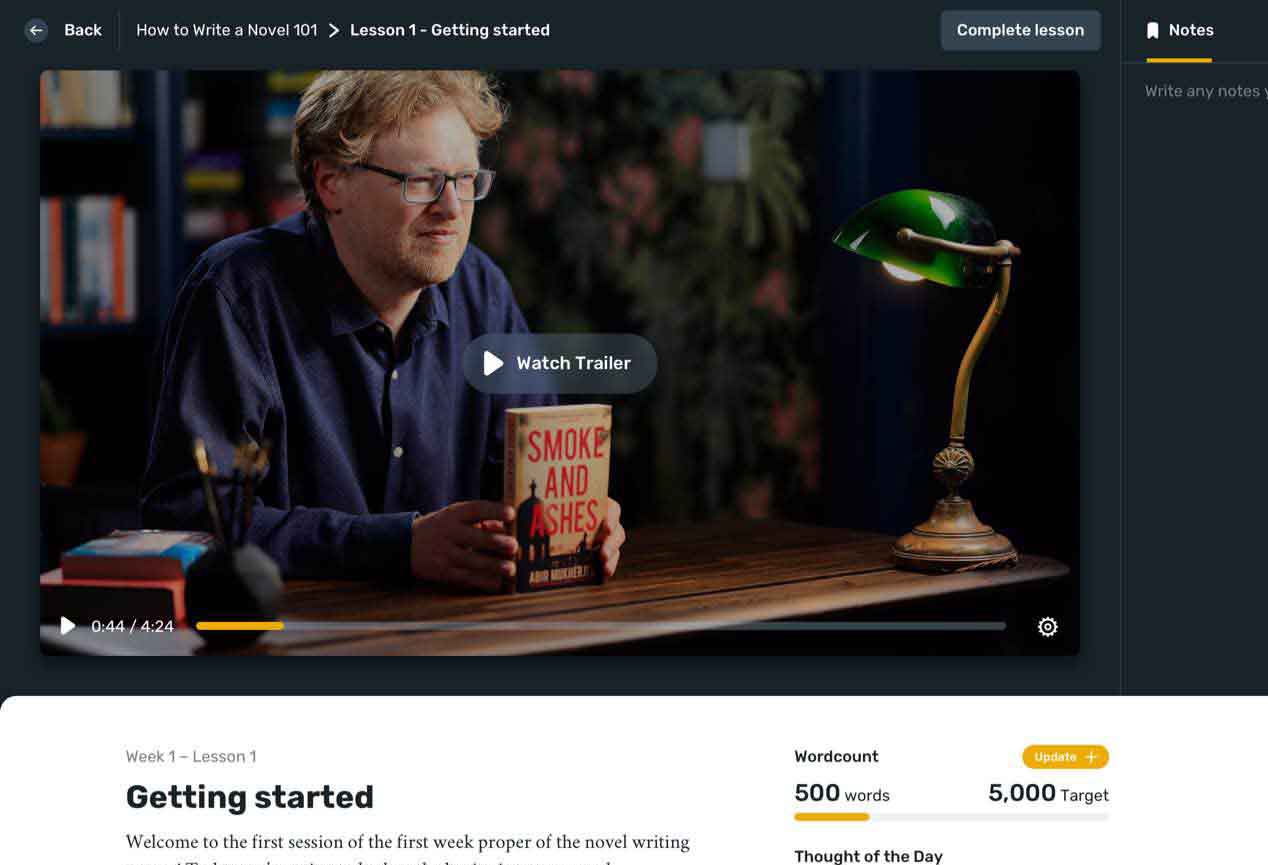
How to Write a Novel
Your story matters. Unlock your potential with daily video lessons from bestselling ghostwriter Tom Bromley, and finish your first draft in just 3 months. Learn more →
Figurative Language: Make Your Writing Sparkle
Kansas City Public Library
In this course, participants will explore the use of metaphors, similes, allegories, and symbols in writing through practical exercises designed to enhance creativity and expression.
Website: https://kclibrary.org/
October, 2024
(Re)writing as Therapy
This course explores the therapeutic potential of writing through journaling and storytelling, aiming to reframe past experiences and enhance personal narratives.
December, 2024
Writing a Resume For Success
This online writing course is for beginners and intermediates, focusing on personal and career development.
Write Your First Novel
Michigan State University
This course helps you write a full-length novel (50,000 words) by guiding you through the process, including idea development, character creation, and structuring your story. It promotes experiential learning with short lectures and practical writing activities, ensuring you have a complete manuscript by the end.
Website: https://www.coursera.org/
Memoir Writing Mini-Course
Red Lounge for Writers
The course consists of three video lessons covering essential elements of memoir writing, common pitfalls, and tips on structuring the beginning and end of your story. Includes downloadable worksheets for hands-on practice.
Website: https://www.redloungeforwriters.com/
Start to Write Your Memoir
The Memoir Network
This free course includes five lessons that teach memoir writing techniques, focusing on memory enhancement, pre-writing tasks, utilizing personal materials, productivity options, and overcoming writer's block.
Website: https://thememoirnetwork.com/free-memoir-writing-course/
Content Marketing Essentials: A Freelancer's Guide
This workshop focuses on transforming freelance writing skills into content marketing opportunities, covering marketing jargon, types of content businesses need, and how to find freelance jobs.
Website: https://www.porchtn.org/workshops
August, 2024
Suffering the Consequences: Building Exciting Plot through Consequential Action
Austin Bat Cave
The course focuses on organic plot development driven by character decisions and their consequences, helping writers create engaging narratives.
Website: https://austinbatcave.org/
Nonfiction Writing: Tell Your Unique Story
In this course, learn to write compelling nonfiction by exploring narrative techniques and journalistic tools to connect with readers authentically.
Website: https://www.domestika.org/en/courses/
How to choose an adult creative writing class
Looking to build your writing skillset, learn more about your genre, or finally finish that book you’ve been working on? You’re in the right place. That’s why we built this directory of the best creative writing courses.
However, creative writing classes aren’t one size fit all. If you’re planning to join an adult creative writing class in particular, you’ll want to make sure that it matches what you’re seeking to learn about the genre.
So make sure to consider the following questions when you’re researching adult writing courses:
- Who is the instructor? How many years of experience do they have in writing books?
- Is there something in particular you’d like to learn in a writing class for adults? Does this course include it?
- How long is the course, and where is it taught?
- How much does the adult writing course cost? Does it fit into your budget?
More creative writing resources
Whether you’re a new or established author, there are always evergreen resources out there to how to get a headstart on writing books.
Free online materials
- Creative Writing Prompts (resource)
- Book Title Generator (resource)
- Character Name Generator (resource)
- Plot Generator (resource)
- Reedsy's blog guide to novel writing basics
- How to Edit a Book (blog post)
Recommended books
- For writers in the UK: Writers' & Artists' Yearbook
- For writers in the US: Writer’s Market 2020
Join a community of over 1 million authors
Reedsy is more than just a blog. Become a member today to discover how we can help you publish a beautiful book.

Save your shortlist
Enter your email address to save your shortlist so that you don't lose it!
By continuing, you will also receive Reedsy's weekly publishing tips and access to our free webinars.

We sent over your shortlist. Thank you for using Reedsy's Writing Courses Directory, happy publishing! 🙌
Try our novel writing master class — 100% free
Sign up for a free video lesson and learn how to make readers care about your main character.

1 million authors trust the professionals on Reedsy. Come meet them.
Enter your email or get started with a social account:

Creative Writing
Select the area you are interested in below to view related courses.
Corporate Education
Learn how we can help your organization meet its professional development goals and corporate training needs.
Donate to UCLA Extension
Support our many efforts to reach communities in need.
Innovation Programs
Student Scholarships
Coding Boot Camp
Lifelong Learning
- Accounting & Finance
- Architecture & Interior Design
- Business & Management
- Communications
- Design & Arts
- Digital Technology
- Engineering
- Entertainment
- Environmental Studies & Public Policy
- Health Care & Counseling
- Humanities & Social Sciences
- Landscape Architecture & Horticulture
- Legal Programs
- Osher (OLLI)
- Real Estate
- Sciences & Math
- Specializations
- Online Courses
- Transfer Credit Courses
- Conferences & Boot Camps
- Custom Programs & Corporate Education
- Instruction Methods
- Environmental Studies
- Accounting Fundamentals
- Business and Management of Entertainment
- College Counseling
- Cybersecurity
- Data Science
- Digital Marketing
- Feature Film Writing
- Human Resources Management
- Marketing with Concentration in Digital Marketing
- Personal Financial Planning
- Project Management
- Sustainability
- User Experience
- Payment Options
- How to Purchase Parking
- Enrollment Conditions
- Concurrent and Cross-Enrollment Programs
- Bruin ID Cards
- UCLA Recreation
- Course Drops, Transfers, and Withdrawals
- Accessibility & Disability Services
- Textbooks & Libraries
- Financial Aid
- Scholarships
- Military & Veterans Benefits
- Tuition Discounts
- Tax Advantages
- Grading Scale
- Credit Options
- Course Numbers
- Transcripts and Enrollment Confirmation
- Receiving Your Academic Credentials
- Instructors & Staff
- Parking & Lodging
- Keynote Speaker
- Career Resources
- Alumni Benefits
- Rights and Responsibilities
- Career Services
- Featured Jobs
- Browse Certificate Programs
- Certificate vs. Master’s Degrees
- Dates and Fees
- How to Apply
- Academic Requirements
- OPT, CPT, and Internships
- Upon Completing Your Certificate
- Hummel Scholarship
- Program Details
- Online International Programs
- International Student Services Office
- New Student Orientation
- Maintaining Your F-1 Visa
- Health Insurance
- Academic Advising
- Frequently Asked Questions
- UCLA Campus Amenities & Activities
- Daily Needs
- Public Transportation
- Request a Proposal
- Board of Advisors
- Instructors
- Join Our Team
- Equity, Diversity & Inclusion
- Accreditation
- Student Home
- Canvas Log In
- Student Log In
- Instructor Log In
Cookie Policy
We use cookies to understand how you use our site and to improve your experience, including personalizing content and to store your content preferences. By continuing to use our site, you accept our use of cookies. Read our privacy policy .

WRITERS IN PARADISE
The conference.
January 18 – 25, 2025
Located on the beautiful waterfront campus of Eckerd College in St. Petersburg, Florida, this writers’ conference features professional writers at the top of their form spending quality time with motivated and talented participants seeking an intimate, unhurried climate for learning…in paradise.
2025 WORKSHOPS
Supernatural/suspense/horror with michael koryta (full week) $950.
This workshop is open to writers working on a suspense novel, particularly one with a supernatural or paranormal element — think Shirley Jackson, Ira Levin, Stephen King, Megan Abbott, and Joe Hill. Our focus will be on the handling of core issues such as character, structure, scene building, and how supernatural suspense is built through grounded stories with emotional realism.
Crime Fiction with Laura Lippman (full week) $950
Looking for the formula for writing great crime fiction? Alas, it doesn’t exist. But this workshop can help writers with novels in which a crime is the engine that moves the story forward. Counter-intuitively, the emphasis will be on character, not plotting. Crime novels work best when characters are true to themselves. Then again, per Raymond Chandler, it never hurts to send a man through the door with a gun.
Memoir with Andre Dubus III (full week) $950
If I teach nothing else in my writing classes, I teach this: do not outline your novel or novella or short story or essay. Do not think out the plot, the narrative arc, the protagonist’s journey, whatever you want to call it. Instead, try to find the story through an honest excavation of the characters’ total experience of the situation in which they find themselves. Do that, and I promise the story will begin to write itself with little need for the controlling hand of the godly, intelligent, well-read, and ambitious author. But how, precisely, does one go about this “excavation”? And how, technically speaking, can we ignite a story into “writing itself”? Come to this workshop, and I will seek to demystify those writerly tools and skills that time and time again, if they are sharp enough, and if the writer can summon enough daily faith and nerve, can penetrate the mystery of story itself.
Nonfiction with Luis Alberto Urrea (full week) $950
Paradise writing non-fiction.
A teacher I like calls our genre “Verity.” So, welcome to our Verity workshop. We will not only share our work, but we will also explore techniques that can make nonfiction as hypnotic as a juicy novel. Guess what: the really good stuff is often hidden to readers. It’s a Jedi mind-trick.
In short—your writing is not only what is on the page, but also what lurks beneath the page – that shadow realm that can make your readers dream.
I’m going to show you the big river of story…even if your story is humble, closely observed. It doesn’t have to be a world-war. It can be about a grandmother’s hands. We will learn to love and trust what lies beneath. Expect great handouts, examples, and maybe some gifts.
Bring your best light. Bring your best shadow.
Don’t be shy. Do not fear. We won’t let you fall.
Short Story with Stewart O’Nan (full week) $950
The class will be primarily a workshop. Students will read one another’s stories, interrogating character, action, language, ideas, and setting with an eye toward revision.
Novel with Ann Hood (full week) $950
“The page is still blank, but there is a miraculous feeling of the words being there, written in invisible ink and clamoring to become visible,” Nabokov said of writing a novel. That’s our goal in this workshop—to bring that miracle of words that tells a story to the page. We will discuss the architecture of novels, the best ways to begin, the muddle of the middle, rising tension, character development, situation versus story, making characters breathe on the page, where to end, and more. Through examples from published novels and close reads of your own work, we will investigate, explore, and celebrate writing your novel.
Graphic Novel with Alex Segura (full week) $950
This workshop will introduce interested writers to the nuts and bolts of the graphic novel medium, from pacing and script format to various genres within the form, an all-purpose tour of a beloved medium that touches on many aspects of the craft. Artistic capability is not a prerequisite. The focus will be on the story elements, the crafting of a high concept, and a loose breakdown of plot. This is primarily a generative workshop, though applicants with experience in the genre will find much to gain. (Submit either a completed short story; the first chapter of a novel, with a synopsis of the remainder; or a sample of work in the genre—25 pages, maximum. Exact guidelines can be found on Submittable starting in August with the opening of our application period.)
3-Day Poetry Workshop with Didi Jackson (January 19-21) $495
In our time together, we will hone down each workshopped poem to its essential strengths. What image, metaphor, simile, etc. … makes a lasting imprint on the mind’s eye? What part of the poem could be let go? Where is the best place to begin or end? Is the poem missing something crucial? Does the poem provide a moment of critical vulnerability? We will focus our attention on the avoidance of cliché and how to spy the extraordinary in the everyday. With support, kindness, and respect, we will all commit to help make each poem a better version of itself.
3-Day Poetry Workshop with Major Jackson (January 23-25) $495
In this revision workshop, we will discuss poems and offer feedback with an eye on aesthetic risk-taking. Please arrive to the conference with three poems, preferably 1-2 pages (exact submission guidelines on Submittable starting in August). We will discuss strategies to push our drafts to next-level thinking and exploration. Students will enter a community of writers whose collective aim is to contemplate growth by way of radical experimentation.
3-Day Generative Short Story with Ana Menéndez (January 19-21) $495
From anecdote to story in three days.
That image you can’t get out of your mind. That anecdote you’ve been telling for the last 10 years. That thing that happened in 2003 that changed everything – all these can be the beginning of a moving and well-crafted work of fiction. This fully generative workshop will take you from telling a personal anecdote to crafting a working draft for a short story. We’ll discuss the difference between anecdote and short story, learn the most basic of story structures, and discuss motif, binary constructions, and other details that will help you deepen subsequent drafts. You’ll leave the three days with at least a rough draft and some basic tools that will allow you to continue shaping the story long after you return home.
3-Day Mythic Structure with Les Standiford (January 23-25) $495
This workshop will focus on the structure of book-length projects–novel, memoir, or general interest non-fiction, either completed or in progress. Discussion will be guided by the principles of mythic structure and archetype, and will center on the clarity and substance of a summary of the project and the efficacy of the 25 pages that open the work. Recommended reading: Christopher Vogler, THE WRITER’S JOURNEY . Joseph Campbell, HERO WITH A THOUSAND FACES .
MANUSCRIPT CONSULTATIONS with Sterling Watson ($450)
During our meeting, the participant and I will discuss the manuscript including my thoughts on what I think works and doesn’t work. I will give the participant a brief report on the manuscript, which will be the basis for my spoken comments. Additionally, I will provide the participant with a line-edited copy of the manuscript (participants may decline line-edits if they wish to). Finally, we will address any questions that the participant prepares for the meeting.
by application only via Submittable from August 1 – November 1 novels in progress, up to 35pp plus synopsis one-hour consult may be combined with a 3-day workshop or stand-alone only may not be combined with a full week workshop due to scheduling conflict accepted manuscript consultees will be considered full participants and thus be eligible to attend all conference events (except workshops) meeting must take place during the conference week (Jan 18-25) participant will work directly with Sterling Watson to arrange meeting time and location
NEW FOR 2025
Keynote speaker, karen russell , pulitzer-prize finalist, guggenheim and macarthur fellow, nyt best-selling author.
Karen Russell will open the 2025 conference with a reading on Saturday 1/18 at 8pm, followed by a Q&A with Conference Director, Les Standiford, and ending with book sales and signings.
Closing Speaker, three-time National Book Award finalist and NYT best-selling author, Lauren Groff
Rounding out a full week of workshops, lectures and gatherings, we welcome Lauren Groff to close out the week. Her reading will take place on Saturday 1/25 at 8pm, followed by a Q&A with Conference Director, Les Standiford, and ending with book sales and signings.
Food writer, author, and three-time James Beard Award recipient, Michael Ruhlman
For accepted participants interested in learning the ins-and-outs of food writing, chef and author, Michael Ruhlman, will lead a 2-part craft talk describing and discussing how best to bring the savory and sweet to life in writing. The second part of the talk will include writing and workshopping.
Graphic Novel
Writers in Paradise is thrilled to welcome Alex Segura , award-winning graphic novelist, as first-time faculty, to teach our very first workshop in Graphic Novel. For writers who’ve been curious and are ready to give this exciting genre a try, we’ve heard you!
Generative Workshops
For the first time, Writers in Paradise will offer generative workshops! Fully-generative Short Story (with Ana Menéndez ) and a partially-generative workshop in Graphic Novel (with Alex Segura ) will give aspiring writers the chance to explore, learn, and create drafts while in workshop. Descriptions of both workshops appear above and exact submission guidelines will be available on Submittable beginning in August with the start of our application period.
Supporting Writers in Paradise
We at WIP have learned throughout the years that we are part of the best community of writers! For those of you who would like to support our conference, we’ve created a donation page to make the process easy. If you have any questions or prefer supporting in other ways, please contact the conference coordinator.
Applications Deadline
Our applications period runs from August 1 to November 1 (11:59 p.m. Eastern Time). Apply starting August 1 on Submittable .
View more about workshop selection, deadlines and conference costs .
Les Standiford
Dennis lehane.
Co-founded by Dennis Lehane and Sterling Watson , and co-directed by Les Standiford , Writers in Paradise offers an intensive eight-day experience of workshop classes, roundtables, panel discussions, Q&As, readings, book signings, and receptions with our award winning-faculty and guest speakers.
The tranquil seaside landscape sets the tone for this informal gathering of writers, teachers, editors, and literary agents. The size and secluded location of the Eckerd College Writers’ Conference allows you the time and opportunity to share your manuscripts, critique one another’s work, and discuss the craft of writing with experts and peers who can help guide you to the next level.
Why You Should Attend
After eight days of workshopping and engagement with peers and professionals in your field, you will leave with a refreshed understanding of your craft and solid ideas about how to find an agent and get published. At the heart of the conference are six days of workshops led by master faculty in various genres where techniques are discussed and participant manuscripts are closely examined.
2025 Faculty & Guests
Writers in Paradise offers a wide array of Fellowships and Scholarships.
Additional Information
The 21st edition of Writers in Paradise will take place in January 18-25, 2025. Esteemed faculty and selected participants workshop for three hours in the morning, attend panels and craft talks in the afternoon, and attend evening readings and events. Participants are actively engaged with our faculty and guests from 9 a.m. to 9 p.m.
For more information about Writers in Paradise, please visit our FAQ or contact Conference Coordinator, Marina Pruna, at [email protected] .

If you’d like to be added to our email list to receive news about the conference including deadline reminders, please sign up here.

Writers in Paradise at Eckerd College 4200 54th Avenue South St. Petersburg, FL 33711
The Eckerd College Writers’ Conference: Writers in Paradise is organized by Marina Pruna, conference coordinator, and by Les Standiford, conference co-director.
727.241.2802 [email protected]
Accessibility | Non-Discrimination | Privacy Report It
- Application & Cost
- Fellowships & Scholarships
- Lodging & Dining
- Sample Schedule
- Refund Policy
- Faculty & Speakers
- Mission & Team
- Testimonials
- Frequently Asked Questions
- Support WIP
MA Creative Writing Poetry
Key Details
Course Overview
You’ve been writing poetry for so long that it’s become a vital part of your life. You may have tried one-off workshops or short courses but find that they are no longer enough. So now is the time to take it further!
This MA is your chance to immerse yourself in writing and reading, and discover more about your imaginative, artistic and intellectual capabilities as a poet. You’ll work intensively on your writing practice with expert guidance and support. And you’ll be part of a group that’s of a consistently high standard, which offers (and expects in return) rigorous feedback and discussion.
An academic context allows you to develop yourself through learning more about poetry across time and place, about form and technique, concept and theory, cause and effect. It’s a chance to read the kinds of poetry you’ve never come across before, and to discover the potential of poetry beyond the forms and approaches you already know.
In our MA Creative Writing (Poetry), we aim to support you in writing poetry of a publishable standard, and to create an encouraging but rigorous environment. You’ll join UEA’s renowned creative writing community in Norwich, a beautiful and historic city and England’s first UNESCO City of Literature.
During the one-year (or two-year part-time) course of intensive reading, writing, exploration and risk-taking, you’ll develop a body of work close in length to a first collection. Through your two Poetry Workshops, you’ll be encouraged to test, extend and refine your poetic technique – an experience that is often exciting and sometimes uncomfortable, but always rewarding. With this in mind, we also give you the chance to learn more about publishing procedures and opportunities, readings, literary awards and more. In the Describing Poetry module that accompanies the first Poetry Workshop, you will be introduced to some of the key thinking about poetry throughout literary history, and encouraged to explore creative-critical approaches to your work. You’ll also choose an optional module from a wide range of creative and critical modules across the Faculty of Arts and Humanities. You’ll benefit from the ways in which the study of poetry enhances analytical, conceptual and verbal skills, as well as refine your powers of precision, argument and logic.
Within UEA’s world-famous writing community, you’ll have the opportunity to meet some of the UK’s leading poets and poetry editors, and to benefit from their insight and expertise. Our annual anthology is professionally published and distributed to a key list of poetry houses and other contacts.
UEA also hosts an annual Poetry Festival, part of which is an event showcasing the MA poets’ work. You’ll have the opportunity to attend a masterclass and to discuss your writing one-to-one with the Poetry Festival Fellow. UEA is also part of a thriving network of regional poetry activity, which offers plenty of opportunities to gain performance experience and to get involved in publication.
Study and Modules
The core element of the MA is the weekly three-hour workshop in a group of around 12 students. The workshop structure varies but generally consists of close discussion of the work of two or three students plus a session on some aspect of poetry. Work is circulated a week in advance and annotated in detail before being returned to its author. The tutor may also circulate texts for discussion. You’ll get the chance to attend a follow-up tutorial with your workshop’s tutor each time your work is discussed in these workshops.
In addition to the weekly workshop, in the first semester you will take a creative-critical module which will develop your thinking about poetic language, and in the second semester you will choose from a number of optional modules. You’ll have regular individual tutorials and extensive written feedback on your coursework.
There is no workshop in the summer semester (May to June), during which time you’ll have one-to-one sessions with your dissertation tutor. In preparation for the dissertation, you will attend a specialised Creative Writing Research Methodology Conference in May, with the entire MA Creative Writing cohort. This day includes plenary sessions, panels and small-group breakout sessions.
In July and August, you’ll work independently, although you may, with your peers, continue the workshop in some form. Over this period, you’ll write your dissertation, which will be a body of poetry and a critical commentary on it.
Compulsory Modules
Creative writing workshop: poetry 1, creative writing research methodology conference, describing poetry, creative writing (poetry) dissertation, creative writing workshop: poetry 2, optional a modules, process and product in translation, digital storytelling, contemporary fiction, ludic literature, japanese literature, the non fiction novel, the poetics of place, creative encounters, critically queer: sex, gender and sexuality, creative-critical writing, environmental humanities: human cultures and the natural world, adaptation and interpretation.
Whilst the University will make every effort to offer the modules listed, changes may sometimes be made arising from the annual monitoring, review and update of modules. Where this activity leads to significant (but not minor) changes to programmes and their constituent modules, the University will endeavour to consult with students and others. It is also possible that the University may not be able to offer a module for reasons outside of its control, such as the illness of a member of staff. In some cases optional modules can have limited places available and so you may be asked to make additional module choices in the event you do not gain a place on your first choice. Where this is the case, the University will inform students.
Teaching and Learning
Teaching
You’ll be taught by published poets with extensive experience in their field through workshops, seminars and tutorials.
Our teaching staff in the School of Literature, Drama and Creative Writing includes award-winning poet Tiffany Atkinson and tutors such as Stephen Benson, Steve Waters, Rachel Potter and Jeremy Noel-Tod.
Independent study
From week to week, you’ll be expected to spend a significant amount of time on independent study, writing and redrafting poems, preparing feedback on your peers’ work, and reading widely in poetry and relevant criticism. And you’ll work independently towards your dissertation towards the end of your course.
You’ll submit 12 poems and a critical commentary for the Poetry Workshop in January, and the same amount for the workshop in May. Your dissertation consists of approximately 15–20 poems plus a critical commentary and is submitted in September.
The assessment for your compulsory module on poetic language is either a 5,000-word essay or a piece of creative-critical work. Assessments for optional modules vary but are typically a 5,000-word essay or an equivalent portfolio of creative and/or critical work.
Entry Requirements
Applications from students whose first language is not English are welcome. We require evidence of proficiency in English (including writing, speaking, listening and reading):
IELTS: 7.0 overall (minimum 7.0 in writing and 6.0 in other components)
Test dates should be within 2 years of the course start date.
We also accept a number of other English language tests. Review our English Language Equivalencies for a list of qualifications that we may accept to meet this requirement.
If you do not yet meet the English language requirements for this course, INTO UEA offer a variety of English language programmes which are designed to help you develop the English skills necessary for successful undergraduate study:
Pre-sessional English at INTO UEA
Academic English at INTO UEA
This course is open to UK and International applicants. The annual intake for this course is in September each year .
Additional Information or Requirements
Candidates are required to submit a portfolio of writing for assessment with their application - up to 20 pages of poetry.
Our Admissions Policy applies to the admissions of all postgraduate applicants.
Fees and Funding
Tuition fees for the Academic Year 2024/25 are:
UK Students: £9,975 (full time)
International Students: £21,200 (full time)
If you choose to study part-time, the fee per annum will be half the annual fee for that year, or a pro-rata fee for the module credit you are taking (only available for Home students).
We estimate living expenses at £1,023 per month.
Further Information on tuition fees can be found here .
Scholarships and Bursaries
The University of East Anglia offers a range of Scholarships ; please click the link for eligibility, details of how to apply and closing dates.
Course Related Costs
Please see Additional Course Fees for details of course-related costs.
How to Apply
Applications for Postgraduate Taught programmes at the University of East Anglia should be made directly to the University.
To apply please use our online application form .
FURTHER INFORMATION
If you would like to discuss your individual circumstances prior to applying, please do contact us:
Postgraduate Admissions Office
Tel: +44 (0)1603 591515 Email: [email protected]
International candidates are also encouraged to access the International Students section of our website.
Employability
After the course.
Our poetry graduates go on to enjoy all kinds of careers, especially in the literary arts. Several have received scholarships for further work at PhD level, many work in publishing (e.g. at Granta and the London Review of Books), and many publish their poetry to high acclaim.
Recent examples include Mona Arshi (MA Poetry 2010) winning the Forward Prize for Best First Collection in 2015, Sam Buchan-Watts (MA Poetry 2014) being named a Faber & Faber New Poet in 2015, Sohini Basak (MA Poetry 2016) winning the Eyewear Publishing Beverly Series Poetry Prize, Sean Wai Keung (MA Poetry 2016) winning the inaugural Rialto Open Pamphlet Competition 2016, and Anna Cathenka and Alice Willitts being shortlisted for the Ivan Juritz prize 2018.
A degree at UEA will prepare you for a wide variety of careers. We've been ranked 1st for Job Prospects by StudentCrowd in 2022.

Example of careers that you could enter include:
Publishing
Editing
Freelance writing
Arts management
Teaching
Advertising
Discover more on our Careers webpages .
Creative Writing Poetry starting September 2024 for 1 years
| 285 Old Westport Road • Dartmouth, MA 02747-2300 508.999.8000 FACEBOOK TWITTER INSTAGRAM YOUTUBE LINKED IN myUMassD Support UMassD Directory Apply Visit Request Info Check Application Status | ||||||||||||||||||
| UMass Dartmouth | ||||||||||||||||||
| ||||||||||||||||||



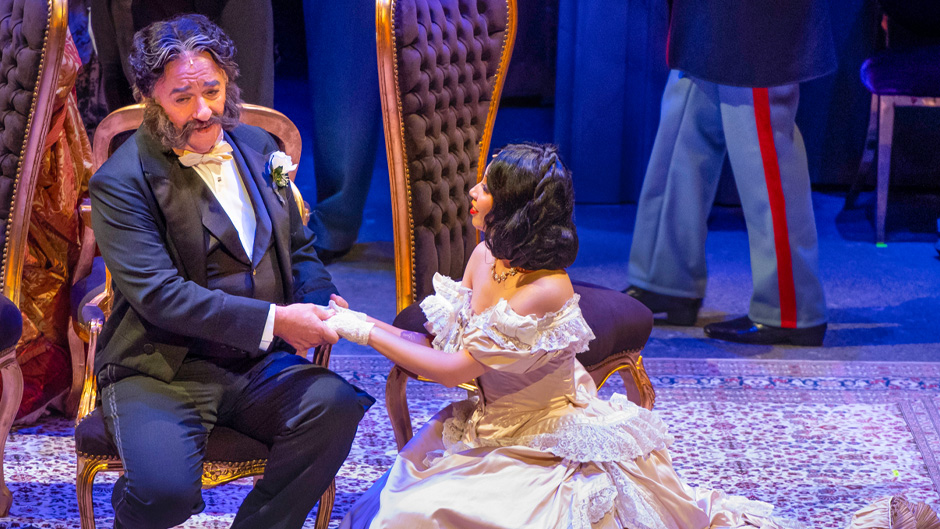

IMAGES
VIDEO
COMMENTS
15 hours. Best University-level Creative Writing Course (Wesleyan University) 5-6 hours. Best Course to Find Your Voice (Neil Gaiman) 4-5 hours. Best Practical Writing Course With Support (Trace Crawford) 12 hours. Best Course to Overcome Writer's Block: 10-Day Journaling Challenge (Emily Gould) 1-2 hours.
Creative writing courses cover a variety of topics essential for developing storytelling and writing skills.These include the fundamentals of fiction and non-fiction writing, character development, plot structure, and dialogue creation. Learners will also explore poetry, memoir writing, and creative non-fiction.Advanced courses might explore genre-specific writing, such as science fiction ...
Udemy — Secret Sauce of Great Writing — Most Affordable. MasterClass — Shonda Rhimes Teaches Writing for Television — Best for Multimedia Writing. The Novelry — Writing for Children — Best for Children's Literature. Writer's Digest University — Creative Writing 101 — Best for Beginners. Bookfox — Two Weeks to Your Best ...
Stanford Continuing Studies' online creative writing courses make it easy to take courses taught by instructors from Stanford's writing community. Thanks to the flexibility of the online format, these courses can be taken anywhere, anytime—a plus for students who lead busy lives or for whom regular travel to the Stanford campus is not possible.
Overall this course comprises a step-by-step process for writing a personal essay that captures your unique personality. You'll also develop the skills and self-assurance you need to keep writing and hone your craft. 3. The Creative Writer's Toolkit: Writing a Character Study (Skillshare)
Browse online and in-person writing courses. Arvon is a charity that runs creative writing courses, events and retreats both in-person and online. Our courses are tutored by leading authors and include a powerful mix of workshops and individual tutorials, with time and space to write, free from distractions of everyday life.
Creative Writing Novel Workshop - Success with Theme. Provided by Udemy. $59.99*. Duration: 1.5 Hours. Explore Kotobee's list of more than 600 of the best online writing courses for 2023. Master your craft, enhance your skills, and take your writing to the next level.
Learn Creative Writing, earn certificates with paid and free online courses from Harvard, Stanford, University of Michigan, Johns Hopkins and other top universities around the world. Read reviews to decide if a class is right for you.
The best in-person creative writing classes. Gotham Writers, the biggest adult-education writing school in the US, is based in New York City and offers in-person classes. With self-paced courses, write-ins, and several free events per term, it emulates the university feel wherever possible. 💲 Cost: $165 - $450.
The Undergraduate Diploma in Creative Writing is a two-year part-time course that helps you to strengthen your ability in four major areas of literary activity — prose, poetry, drama and analytical reading — while letting you specialise in the genre of your choice. Choose from two study options: regular in-person meetings in Oxford or ...
English 3350.301Advanced Nonfiction Writing: Narrative NonfictionBuzz Bissinger R 5:15-8:15pm and F 1:45-4:45pm (every other week) Add to Cart. This is a course for students who love the written word and desire to advance their ability to write and craft narrative nonfiction.
Creative Writing Certificate. Develop your skills in the genre of your choice, including fiction, creative nonfiction, poetry, and more. This customizable program culminates in a capstone project where you will make significant progress on a polished collection of work. Taught by a prestigious roster of instructors who are published writers and ...
The vital presence of creative writing in the English Department is reflected by our many distinguished authors who teach our workshops. We offer courses each term in fiction, poetry, nonfiction, screenwriting, playwriting, and television writing. Our workshops are small, usually no more than twelve students, and offer writers an opportunity to focus intensively on one genre.
Works in Progress is Hugo House's semi-monthly writing open mic series inclusive of diverse formats. Read your work—poetry, fiction, essays, memoirs, plays, music, comedy, and more—and connect with your literary community. Creative writing classes and writing workshops in fiction, nonfiction, poetry, and more for writers of all levels.
Choose from writing courses in creative nonfiction, fiction, poetry, memoir, magazine writing, travel writing, the short story and more. Stanford Continuing Studies offers writing workshops and online and on-campus writing courses, so you can choose the format that best fits your schedule.
English 3028.301, Introduction to Creative Writing: Breath and Movement, Amber Rose Johnson, R 3:30-6:30pm (cancelled for Spring 2023) Add to cart. This workshop style class will combine creative writing exercises and guided movement practices that draw our critical attention to breath and breathing, at a time when both have become highly politicized.
For writers in the US: Writer's Market 2020. Reedsy is more than just a blog. Become a member today to discover how we can help you publish a beautiful book. A comprehensive directory of 29 adult writing classes in 2024, vetted by the team at Reedsy. Filter for the perfect writing course by genre, location, and more!
Master Class in Creative Nonfiction Writing. Review and reimagine your creative nonfiction book manuscript in this three-quarter course for students revising their work toward finding an agent and submitting to publishers. Format: Live Online. Next Start Date: October 3, 2024. WRITING X 411.6.
The 21st edition of Writers in Paradise will take place in January 18-25, 2025. Esteemed faculty and selected participants workshop for three hours in the morning, attend panels and craft talks in the afternoon, and attend evening readings and events. Participants are actively engaged with our faculty and guests from 9 a.m. to 9 p.m.
Applications from students whose first language is not English are welcome. We require evidence of proficiency in English (including writing, speaking, listening and reading): IELTS: 7.0 overall (minimum 7.0 in writing and 6.0 in other components) Test dates should be within 2 years of the course start date.
Any 200-level writing course: ENL 254 - Autobiographical Writing Credits: 3; ENL 262 - Introduction to Journalism Credits: 3; ... Creative and Professional Writing Requirement (6 credits) Take at least two courses from the list below. Students are required to take at least two 300-level writing courses.
Classes meet online at specific times through Zoom and attendance is required. Description: These courses provide the option to attend class in person while accessing course materials online. Description: Blended courses combine face-to-face and online learning modes and provide the benefits of both online learning and campus visits.
Beginning July 2023, a non-refundable fee for this service will be required before the application is processed. ... or excerpt from thesis or other longer work demonstrating familiarity with the conventions of academic research and writing) not to exceed 20 pages. ... Applicants must submit representative samples of creative work (for Prose ...
Creative Writing classes are also seldom offered online, leaving the only option for these majors to transfer. ... beginning Fall 2023. If and when this proves successful, we ask for a dedicated Creative Writing faculty member stationed on the Saint Petersburg campus. ...
Kick off the fall semester with programs and events that highlight the arts and humanities at the University, including musical performances, cutting-edge theatrical premieres, thought-provoking lectures, author readings, art exhibitions, and film screenings.
Creative Writing (CRW) Computer Technology Skills (CTS) Dance Activities (DAA) Dance (DAN) Dental Hygiene (DEH) ... Find Courses or Programs. Select Courses or Programs from the "Type" dropdown at the top of the page. Enter the course or program in the "Keyword Search". To refine your search, use the College or Subject filters.